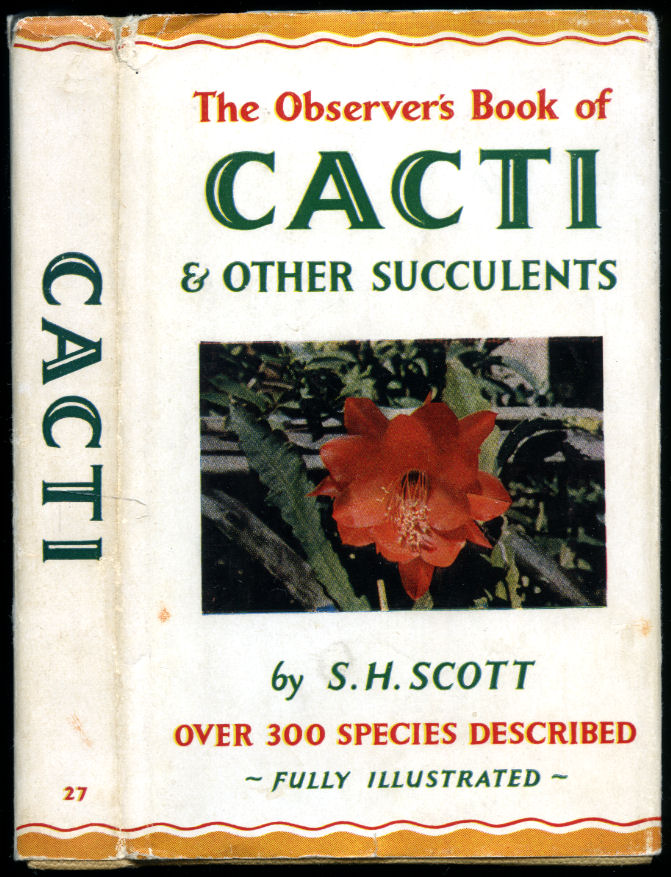Home
Search for Books
How to order
Your orders
Customer Comments
Join our mailing list
About
Bookbinding
Search for Books
How to order
Your orders
Customer Comments
Join our mailing list
About
Bookbinding

IBAN:
GB74 BUKB 2017 9210 0341 93
SWIFTBIC:BUKBGB22
GB74 BUKB 2017 9210 0341 93
SWIFTBIC:BUKBGB22
'Wrapro' card boxes which we use for packaging are produced and made from 100% recyclable material
The protective bubble wrap bags we use for packaging are made from 100% Oxo-Biodegradable starch
Little Stour Books was established in 1996
by Colin Button.
© Little Stour Books 2022
You searched for: Scott
In Praise of Oxford | An Anthology for Friends
Horder, Lord [Rev. Harry Escott (1905-1987), MA, Congregational Minister at Rhynie, Aberdeenshire]
(Book #ID 106745)
Published by Frederick Muller Ltd., 29 Great James Street, London First Edition 1955. 1955.
First edition hard back binding in publisher's original illustrated blue paper covered boards. 12mo. 6'' x 4¼''. Contains 56 pp with monochrome archive photographs throughout, large folding red and black map of the Colleges and Halls throughout Oxford. From the private library of Rev. Harry Escott with his private bookplate to the front paste down SIGNED 'Harry Escott' with his address in Oxford opposite, also a business card from Harry Escott loosely enclosed from an address in Glasgow with lengthy written notes by him to both sides, Pusy House card also enclosed. In Very Good condition. Member of the P.B.F.A.
Click here to select books from the
OXFORDSHIRE (Oxonium) Category
£20.00
Never Sing Louder Than Lovely | An Autobiography by Isobel Baillie
Baillie, Isobel [Dame Isobel Baillie, DBE (9 March 1895 - 24 September 1983), née Isabella Douglas Baillie, was a Scottish soprano].
(Book #ID 114069)
Published by Hutchinson & Co. Ltd., 17-21 Conway Street, London Reprinted Edition 1983. 1983.
Reprinted edition hard back binding in publisher's original black cloth covered boards, blocked and lettered gilt back. 8vo. 9½'' x 6¼''. Contains 208 pp with monochrome photographs throughout. Fine condition book in Fine condition dust wrapper, not price clipped. Dust wrapper supplied in archive acetate film protection. Member of the P.B.F.A.
Click here to select books from the
MUSIC [Classical] Category
£8.00
Account of the Conquest of Mauritius | With Some Notices on the History, Soil, Products, Defences, and the Political Importance of This Island. To Which is Added, A Sketch of the Town and Environs of Port Louis, Explanatory of the Military Operations. By an officer who Served on the Expedition.
Carmichael, Captain Dugald [Anonymously] (born 1772 in Stronacraoibh, Lismore Island, died 1827 in Appin) was a Scottish botanist and officer in the 72nd Highlanders. He is known as the 'Father of Marine Botany'. The plant genus Carmichaelia is named after him.
(Book #ID 95305)
London. Printed by Authority, by T. Egerton, Military Library, Whitehall First Edition 1811. 1811.
First edition hard back binding in publisher's original full speckled leather binding, rebacked, gilt lines with small red and gilt title label to the spine, marble page edges, new end papers. 8vo. 8½'' x 5½''. Dugald Carmichael enrolled at the University of Glasgow to study Classics, attending the 1787 Greek class of John Young. He was born in Lismore, Argyll, son of Archibald. After attending the University of Glasgow, Carmichael took up the study of Medicine at the University of Edinburgh, from where he qualified as a surgeon. He served as an assistant-surgeon in the Argyllshire Fencibles in Ireland for nine years, before entering the 72nd Highlanders Regiment as an ensign. Carmichael would go on to take part in numerous expeditions during his career as an army surgeon: In 1805, he was among those who served under Sir David Baird, who commanded the expedition against the Cape of Good Hope. In 1807, Carmichael volunteered to go to Algoa Bay, modern day Port Elizabeth; In 1810, he was part of the expedition in Mauritius, to capture it from French rule; in 1817 he joined the expedition that took possession of Tristan da Cunha. Carmichael was granted leave in 1813 during which time he explored the Island of Bourbon, modern day Réunion. Carmichael returned to Argyll in 1817, where he stayed with his sister for two years near Oban, before becoming tenant in 1820 of the farm Ardtur, where he remained till his death in September 1827. He died in Appin, and is buried in the Churchyard of Lismore. As well as distinguishing himself as army surgeon, Captain Carmichael had continued to develop his life-long interest in natural science, to the extent that he claimed to be known as the 'Father of Marine Botany'. His extensive travels overseas were also used to add to his botanical knowledge and collections. Among his published research was Some Account of the Island of Tristan da Cunha and of its Natural Productions (1818). As a friend and correspondent of Sir William Hooker, Hooker named many marine plants after him, including the Carmichaeliana or New Zealand Broom. Charles Darwin also acknowledged his contribution in referring to Carmichael as 'an authority on many points in natural science'. Contains folding colour frontispiece map., [iv] 65 pp., errata. Corners bruised, marks to the boards, contents in Fine condition. Member of the P.B.F.A.
Click here to select books from the
MAURITIUS (Mascarenhas) Category
£7500.00
Golf with the Experts | An Instructional Anthology from the Greatest Names in Golf
Scott, Tom [Henry Cotton, Bobby Locke, Sam Snead and others]
(Book #ID 119486)
Published by William Heinemann Limited, London First Edition 1959. 1959.
First edition hard back binding in publisher's original blue cloth covers, silver lettering to spine. 8vo 7½'' x 5¼''. Contains 180 pp with monochrome photographic illustrations on glossy silk art paper. Very good condition book in Good condition dust wrapper with closed tears to the edges, not price clipped, 16s. Dust wrapper protected. Member of the P.B.F.A.
Click here to select books from the
SPORT [Golf] Category
£11.00
Henry Dyer: Pioneer of Engineering Education in Japan
Miyoshi, Nobuhiro [Henry Dyer (August 23, 1848 - September 25, 1918) was a Scottish engineer who contributed much to founding Western-style technical education in Japan and Anglo-Japanese relations].
(Book #ID 85793)
Published by Global Oriental Ltd., Folkestone, Kent First Edition 2004. 2004.
First edition hard back binding in publisher's original burgundy cloth covers, gilt title and author lettering to the spine. 8vo. 9'' x 6''. Contains [xxv] 193 printed pages of text with monochrome photographs. Fine condition book in Fine condition dust wrapper, unused and unopened new book. We carry this book in stock for immediate dispatch. Member of the P.B.F.A. ISBN 1901903664
Click here to select books from the
JAPAN (History & Culture) Category
£25.00
Relics of an Uncommon Attorney
Hine, Reginald L. [with a Memoir by Richenda Scott]
(Book #ID 107009)
Published by J. M. Dent & Sons Ltd., Aldine House, Bedford Street, London First Edition 1951. 1951.
First edition hard back binding in publisher's original racing green cloth covered boards, blocked and lettered gilt back, archive end papers, green upper edges. 8vo. 8½'' x 6''. Contains 253 pp with monochrome frontispiece, illustrations and archive photographs throughout. Lower spine end a little soft, some foxing to the free end papers and closed fore edges. Very Good condition book in Very Good condition reinforced dust wrapper with tape to upper and lower spine end and corners, not price clipped 18s. Dust wrapper supplied in archive acetate film protection. Member of the P.B.F.A.
Click here to select books from the
HERTFORDSHIRE Category
£11.00
A Touch of the Sun | Original Souvenir Theatre Programme Performed at Royal Lyceum Theatre, Edinburgh
Written by N. C. Hunter [Starring: Lee Fox, Michael Lewin, Jean Kent, Julian d'Albie, Edward Vaughan-Scott, Roderick Lovell]. Directed by Anthony Knowles
(Book #ID 101170)
Performance Programme Dated 15th September, 1958. 1958.
Original stapled souvenir theatre programme in paper covers with blue and black silhouette of the theatre to the front cover. 8¾'' x 5½''. Contains 12 pages including the covers, illustrated advertisements. In Very Good condition. Member of the P.B.F.A.
Click here to select books from the
THEATRE PROGRAMMES Category
£8.00
Six Engravings in Illustration of Rob Roy | For the Members of The Royal Association for Promotion of the Fine Arts in Scotland.
Walker, Scott [The Royal Association for Promotion of the Fine Arts in Scotland] James Stephenson, R. C. Bell, John Le Conte, William Miller, William Forrest, Thomas Brown. The Artists Being Gourlay Steele, Robert Herdman, J. B. McDonald, John McWhirter, and Sam Bough.
(Book #ID 95173)
Published by The Royal Association for Promotion of the Fine Arts in Scotland 1868. 1868.
First edition hard back binding in publisher's original bottle green cloth covers, gilt title and gilt insignia to the front cover 'Production of the Fine Arts in Scotland 1868'. Folio 17'' x 12''. Contains six paper guarded steel engraved plates on thick card stock with full page of text opposite each. Just a little fraying in a couple of places of the cloth to the top front gutter, the text block and engravings are without any foxing or age toning to the paper or the guards, being in Very Good clean and fresh condition. Member of the P.B.F.A.
Click here to select books from the
ART [British] Category
£150.00
By the Elbe | Volume I (One / 1)
Tytler, Sarah [Henrietta Keddie (1827 - 1914) was a prolific Scottish novelist who wrote under the pseudonym Sarah Tytler. Her domestic realism became popular with women, as did her conduct books for girls].
(Book #ID 94383)
Published by Smith, Elder & Co., 15 Waterloo Place, London First Edition 1876. 1876.
First edition hard back binding in publisher's original green cloth covers, gilt title lettering to the spine, black designs and lettering to the spine and to the front cover, primrose end papers. 8vo. 7½'' x 5¼''. Contains [viii] 336 printed pages of text. Rubbing to the cover edges and corners, without any foxing and in Good condition. Member of the P.B.F.A.
Click here to select books from the
STORIES FOR GIRLS Category
£95.00
The Phantom of the Card Table
McGuire, Eddie [Walter Irving Scott]
(Book #ID 116880)
Published by The Gambler's Book Club, Las Vegas, Nevada 1976. 1976.
Publisher's original wire stitched card wrap covers (soft back). 8vo. 8½'' x 5½''. The original 1931 manuscript was a collection of notes, letters and typed up explanations on the secrets of Scott's work from special techniques to cheating devices. Contains 64 pp. Slight tanning to the spine and edges, else in Very Good condition, no dust wrapper as issued. Member of the P.B.F.A.
Click here to select books from the
MAGIC & CONJURING Category
£50.00
The Observer's Book of Cacti and Other Succulents | Describing Over 300 Species [The Observer Pocket Series No. 27].
Scott, S. H. [Stanley Henderson Scott | Honorary Secretary of the National Cactus and Succulent Society].
(Book #ID 104935)
Published by Frederick Warne Ltd., 40 Bedford Square, London First Edition 1958. 1958.
First edition hard back binding in publisher's original Farrows cream paper covered boards, blocked and lettered in dark green. 5¾'' x 3¾''. Warne print code 680.1057. Contains 159 pp with 16 colour and 66 monochrome photographs throughout. Very Good condition book, in Very Good condition dust wrapper with small closed tears to the top of the spine, not price clipped, 5/-. Member of the P.B.F.A.
Click here to select books from the
OBSERVER’S (Series) Category
£22.00
The Children's Book of London
Mitton, G. E. [afterwards Scott (Geraldine Edith) Lady]
(Book #ID 113922)
Published by Adam & Charles Black, Ltd., 4-6 Soho Square, London First Edition 1903. 1903.
First edition hard back binding in publisher's original strawberry cloth covered boards, blocked and lettered gilt back, cream title to the front. 8vo. 8¼'' x 6''. Contains 376 pp with 8 full-page single-sided colour plates. Spine sun faded, colour illustrations of The Tower of London and St. Paul's Cathedral adhered to the front end papers, ink message to the front paste down and in Good condition, no dust wrapper. Member of the P.B.F.A.
Click here to select books from the
LONDON (Londinium) Category
£15.00
Planning Advice Note: Archaeology | The Planning Process and Scheduled Monument Procedures (PAN 42) 1994
Scottish Office Environment Department
(Book #ID 91374)
Published by The Scottish Office Environment Department 1994. 1994.
Publisher's original green and white card wrap covers [soft back]. 4to. 11¾'' x 8¼''. Contains 24 printed pages of text. In Fine condition, no dust wrapper as issued. Scottish Office Environment Department compliments slip loosely enclosed. Member of the P.B.F.A.
Click here to select books from the
ARCHAEOLOGY (Scotland) Category
£11.00
Matt Busby | My Story as Told to David R. Jack [Signed] + Photograph
Busby, Matt [Sir Alexander Matthew Busby, CBE, KCSG (26 May 1909 - 20 January 1994) was a Scottish football player and manager, who managed Manchester United between 1945 and 1969 and again for the second half of the 1970-71 season. He is widely regarded as one of the greatest managers of all time]. As Told to David R. Jack
(Book #ID 93608)
Published by Souvenir Press Ltd., 94 Charlotte Street, London First Edition 1957. 1957.
First edition hard back binding in publisher's original scarlet cloth covers, gilt title and author lettering to the spine. 8vo. 8½'' x 5½''. Contains 219 printed pages of text with period monochrome photographs throughout. Slight age tanning to the page edges. Very Good condition book in Good condition dust wrapper with sun fading down the spine, small chips to the spine ends and corners, not price clipped 15/-. Loosely inserted is a SIGNED 'Matt Busby (G.B.)' corner mounted card and period monochrome photograph of Matt Busby. Dust wrapper protected. Member of the P.B.F.A.
Click here to select books from the
SPORT [Football] Category
£95.00
A Touch of the Sun - A Three Act Play | Original Souvenir Theatre Programme Performed at King's Theatre, Glasgow
Written by N. C. Hunter [Starring: Lee Fox, Michael Lewin, Jean Kent, Julian d'Albie, Edward Vaughan-Scott, Roderick Lovell]. Directed by Anthony Knowles
(Book #ID 101198)
Performance Programme Dated 8th September, 1958. 1958.
Original stapled souvenir theatre programme in paper covers with red and black silhouette illustration of the theatre to the front cover. 8¾'' x 5½''. Contains 12 pages including the covers, illustrated advertisements. In Very Good condition. Member of the P.B.F.A.
Click here to select books from the
THEATRE PROGRAMMES Category
£8.00
The London Mercury | Volume (31) XXXI. No. 181 [November 1934]
Bates, H. E., Sylvia Townsend Warner, Charles Madge, Edwin Muir, Sean O'Faolain, Paul Nash [Contribute] Edited by R. A. Scott-James
(Book #ID 100859)
Published by The London Mercury, Editorial Offices 14 Burleigh Street, Strand London November 1934 Vol. XXXI No. 181. 1934.
First edition in publisher's original peach paper yapp wraps [soft back]. 10" x 7". Contains 104 printed pages of text. Illustrated. Includes: A critical review of John Masefield's book 'The Taking of the Gry' by H. E. Bates. Edges of the wrapper a little ragged. In Very Good condition. Member of the P.B.F.A.
Click here to select books from the
LITERARY CRITICISM Category
£20.00
A Touch of the Sun | Original Souvenir Theatre Programme Performed at The New Theatre, Hull
Written by N. C. Hunter [Starring: Lee Fox, Michael Lewin, Jean Kent, Julian d'Albie, Edward Vaughan-Scott, Roderick Lovell]. Directed by Anthony Knowles
(Book #ID 101147)
Performance Programme Dated September 29th, 1958. 1958.
Original stapled souvenir theatre programme in paper covers. 8¾'' x 5½''. Contains 16 pages including the covers, illustrated advertisements. In Very Good condition. Member of the P.B.F.A.
Click here to select books from the
THEATRE PROGRAMMES Category
£8.00
A Touch of the Sun | Original Souvenir Theatre Programme Performed at The New Theatre, Hull
Written by N. C. Hunter [Starring: Lee Fox, Michael Lewin, Jean Kent, Julian d'Albie, Edward Vaughan-Scott, Roderick Lovell]. Directed by Anthony Knowles
(Book #ID 101148)
Performance Programme Dated September 29th, 1958. 1958.
Original stapled souvenir theatre programme in paper covers. 8¾'' x 5½''. Contains 16 pages including the covers, illustrated advertisements. In Very Good condition. Member of the P.B.F.A.
Click here to select books from the
THEATRE PROGRAMMES Category
£8.00
Saint George; The Saint with Three Faces
Fox, David Scott
(Book #ID 108172)
Published by The Kensal Press, Windsor Forest, Berkshire First Edition 1983. 1983.
First edition hard back binding in publisher's original scarlet paper covered boards, blocked and lettered gilt back. 8vo. 9½'' x 6¼''. Contains 187 pp with monochrome illustrations and archive photographs throughout. Fine condition book in Fine condition dust wrapper, not price clipped. Dust wrapper supplied in archive acetate film protection. Member of the P.B.F.A. ISBN 094604113X
Click here to select books from the
ENGLISH HISTORY Category
£11.00
Pendragon; The Definitive Account of The Origins of Arthur
Blake, Steve and Scott Lloyd
(Book #ID 93032)
Published by Ebury Press, 20 Vauxhall Bridge Road, London First Edition 2002. 2002.
First edition hard back binding in publisher's original black paper covered boards, gilt title and author lettering to the spine, maps to the end papers. 8vo. 9½'' x 6¼''. Contains 310 printed pages of text with colour and monochrome photographs throughout. Lower spine end scuffed. Near Fine condition book in Fine condition dust wrapper, not price clipped. Dust wrapper supplied in archive acetate film protection, it does not adhere to the book or to the dust wrapper. Member of the P.B.F.A. ISBN 0712631216
Click here to select books from the
MYTHOLOGY & LEGENDS Category
£11.00
Selkirk's Island [Signed]
Souhami, Diana [Alexander Selkirk (1676 - 13 December 1721) was a Scottish privateer and Royal Navy officer who spent four years and four months as a castaway (1704-1709) after being marooned by his captain on an uninhabited island in the South Pacific Ocean].
(Book #ID 106003)
Published by George Weidenfeld & Nicolson Ltd., The Orion Publishing Group, 5 Upper St. Martin's Lane, London First Edition 2001. 2001.
First edition hard back binding in publisher's original burgundy red boards, Venetian red end papers. 8vo. 9'' x 6''. His story of survival was widely publicised after his return to England, becoming a source of inspiration for writer Daniel Defoe's fictional character Robinson Crusoe. Contains 246 pp with colour photographs, monochrome illustrations and maps throughout. Fine condition book in Fine condition dust wrapper, not price clipped. SIGNED by the author to the title page 'Diana Souhami'. Dust wrapper supplied in archive acetate film protection. Member of the P.B.F.A. ISBN 0297643851
Click here to select books from the
DEFOE, Daniel (c. 1660-1731) Category
£15.00
A Touch of the Sun | Original Souvenir Theatre Programme Performed at Royal Lyceum Theatre, Edinburgh
Written by N. C. Hunter [Starring: Lee Fox, Michael Lewin, Jean Kent, Julian d'Albie, Edward Vaughan-Scott, Roderick Lovell]. Directed by Anthony Knowles
(Book #ID 101168)
Performance Programme Dated 15th September, 1958. 1958.
Original stapled souvenir theatre programme in paper covers with blue and black silhouette of the theatre to the front cover. 8¾'' x 5½''. Contains 12 pages including the covers, illustrated advertisements. In Very Good condition. Member of the P.B.F.A.
Click here to select books from the
THEATRE PROGRAMMES Category
£8.00
A Touch of the Sun | Original Souvenir Theatre Programme Performed at Royal Lyceum Theatre, Edinburgh
Written by N. C. Hunter [Starring: Lee Fox, Michael Lewin, Jean Kent, Julian d'Albie, Edward Vaughan-Scott, Roderick Lovell]. Directed by Anthony Knowles
(Book #ID 101169)
Performance Programme Dated 15th September, 1958. 1958.
Original stapled souvenir theatre programme in paper covers with blue and black silhouette of the theatre to the front cover. 8¾'' x 5½''. Contains 12 pages including the covers, illustrated advertisements. In Very Good condition. Member of the P.B.F.A.
Click here to select books from the
THEATRE PROGRAMMES Category
£8.00
Ce soir, mon amour (Valse) | Violette (Valse) | Il n'y a plus de Pyrénées (Paso Doble) [Musicians Vintage French Accordeon (Accordion) Sheet Music]
Vincent Scotto (Music) and Paul Achard, René Jeanne, Henri Varna (Lyrics)
(Book #ID 94029)
Published by Éditions Houbert 25 Rye d'Hauteville, Paris 1948. 1948.
Vintage sheet music in illustrated purple and cream printed paper covers. 10¾'' x 7''. Contains 8 pages folding sheet music including the covers. In Very Good condition. Member of the P.B.F.A.
Click here to select books from the
SHEET MUSIC Category
£15.00
Marguerite tu vas trop vite | Les petits mots d'amour | L'Hirondelle [Musicians Vintage Violin, Mandoline, Accordion Piano Sheet Music]
Nicolino Milano | Pierre Marges | V. Scotto | Phylo (Music) and Lucien Boyer (Lyrics)
(Book #ID 94127)
Published by Éditions Salabert, 22 Rue Chauchat, Paris 1920. 1920.
Vintage sheet music without any covers. 10¾'' x 7''. Contains 4 sides folding sheet music. The paper is soft, foxed and with a crease line across the centre. Member of the P.B.F.A.
Click here to select books from the
SHEET MUSIC Category
£8.00
Researches in Organic Chemistry 1909 - 1924 | Collection of 48 Transactions of the Chemical Society Papers (and Memoirs & Proceedings of the Manchester Literary and Philosophical Society and Faraday Society). Comprising: A New Synthesis of Oxazole Derivatives | The Synthesis of Nitrognoscopine and Allied Substances (Preliminary Note) | Synthetical Experiments in the Group of the Isoquinoline Alkaloids, Part I: Anhydrocotarninephthalide | Part II: The Constitution of the Condensation Products of Cotarnine and the Condensation of Cotarnine with Aliphatic and Aromatic Nitro-Compounds | B-Gnoscopine (Preliminary Note) | Anhydrohydrastininemeconine (Preliminary Note) | 2-Diketohydrindene | Some Derivatives of Oxazole | Mechanism of the Benzoin Synthesis (Preliminary Note) | 2 - Phenyl - 5 - Styryloxazole | Researches on Pseudo-Bases | Some Derivatives of Safrole | Synthetical Experiments in the Group of the Isoquinoline Alkaloids Part IV: Gnoscopine | Some Derivatives of Isocoumarin and Isocarbostyril | Eudesmin and its Derivatives | Phenols Occurring in Some Eucalyptus Oils | Note on the Nitroguaiacols | A Decomposition of Certain O-Nitromandelic Acids | An extension of the Theory of Addition to Conjugated Unsaturated Systems. Part I. Note on the Constitution of the Salts of 1-benzylidene-2-methyl-1 : 2 : 3 : 4-tetrahydroisoquinoline | A Synthesis of Tropinone | A Theory of the Mechanism of the Phytochemical Synthesis of Certain Alkaloids | The Scission of Certain Substituted Cyc
Robinson, Robert [Sir Robert Robinson (13 September 1886 - 8 February 1975) was a British organic chemist and Nobel laureate recognised in 1947 for his research on plant dyestuffs (anthocyanins) and alkaloids]. Joseph Lister | Edward Hope | William Henry Perkin | Walter Morrell Roberts | Gertrude Maud Robinson | Robinson Percy Foulds | David Bain | Henry G. Smith | David Cardwell | Ellice Ettie Pedin Hamilton | Ellen Margaret Hindmarsh | Isabel Knight | Anne Mary Bleakly Orr | Margaret Mary Williams | Janet Forrest McGillivray Brown | Fanny Pollecoff | Herbert Grace Crabtree | William Ogilvy Kermack | James Scott | Alexander Killen Macbeth | John Masson Gulland | Arthur Lapworth | Chinyann Kumara | Bernard Holtom Roberts | George Roger
(Book #ID 114572)
Published by Proceedings of the Chemical Society of London 1909 to 1912. 1910 | 1924.
Hard back binding in publisher's original royal blue cloth covered boards, blocked and lettered gilt back. 8vo. 8½'' x 6''. A titan in the world of science, Sir Robert Robinson was Professor of Chemistry at the Universities of Sydney, Liverpool, St Andrews, Manchester and University College London as well as having briefly led the British Dyestuffs Corporation laboratories, in 1947 he received the Medal of Freedom with Silver Palm. Robinson Close, in the Science Area at Oxford, is named after him, as is the Robert Robinson Laboratory at the University of Liverpool, the Sir Robert Robinson Laboratory of Organic Chemistry at the University of Manchester and the Robinson and Cornforth Laboratories at the University of Sydney, he was President of the Chemical Society from 1939 to 1941. In Very Good condition. SIGNED by Sir Robert Robinson to the front free end paper 'With kind regards to Professor D. R. Kulin from R. Robinson - March 1932.' Researches in Organic Chemistry 1909 - 1924 | Collection of 48 Transactions of the Chemical Society Papers (and Memoirs & Proceedings of the Manchester Literary and Philosophical Society and Faraday Society) Comprising: A New Synthesis of Oxazole Derivatives | The Synthesis of Nitrognoscopine and Allied Substances (Preliminary Note) | Synthetical Experiments in the Group of the Isoquinoline Alkaloids, Part I: Anhydrocotarninephthalide | Part II: The Constitution of the Condensation Products of Cotarnine and the Condensation of Cotarnine with Aliphatic and Aromatic Nitro-Compounds | B-Gnoscopine (Preliminary Note) | Anhydrohydrastininemeconine (Preliminary Note) | 2-Diketohydrindene | Some Derivatives of Oxazole | Mechanism of the Benzoin Synthesis (Preliminary Note) | 2 - Phenyl - 5 - Styryloxazole | Researches on Pseudo-Bases | Some Derivatives of Safrole | Synthetical Experiments in the Group of the Isoquinoline Alkaloids Part IV: Gnoscopine | Some Derivatives of Isocoumarin and Isocarbostyril | Eudesmin and its Derivatives | Phenols Occurring in Some Eucalyptus Oils | Note on the Nitroguaiacols | A Decomposition of Certain O-Nitromandelic Acids | An extension of the Theory of Addition to Conjugated Unsaturated Systems. Part I. Note on the Constitution of the Salts of 1-benzylidene-2-methyl-1 : 2 : 3 : 4-tetrahydroisoquinoline | A Synthesis of Tropinone | A Theory of the Mechanism of the Phytochemical Synthesis of Certain Alkaloids | The Scission of Certain Substituted Cyclic Catechol Ethers | 5-Bromoguaiacol and Some Derivatives | The Action of Halogens on Piperonal | Veratricsulphinide | A New Synthesis of Tetraphenylpyrrole | Nitro-Derivatives of Guaiacol | A Synthesis of Isobrazilein and Certain Related Anhydropyranol Salts | Harmine and Harmaline (Parts IV and V) | The Conjugation of Partial Valencies | An Explanation of the Property of Induced Polarity of Atoms and an Interpretation of the Theory of Partial Velencies on an Electronic Basis | Note on 2 : 3- and 2 : 5-Dinitro-p-Toluidines | Cevadine (Part I) | The Morphine Group (Parts I and II) | Octet Stability in Relation to Orientation and Reactivity in Carbon Compounds | Some Derivatives of Benzoprylium | The Mechanism of E. Fischer's Synthesis of Indoles. Application of the Method to the Preparation of a Pyrindole Derivative | Strychnine and Brucine (Part II) | A Synthesis of Pelletierine | 5-Carboline and Some Derivatives | A New Route to the 3-Hydroxybenzopyrylium Salts | Nitration of 2 : 3-Dimethoxybenzaldehyde. Joseph Lister | Edward Hope | William Henry Perkin | Walter Morrell Roberts | Gertrude Maud Robinson | Robinson Percy Foulds | David Bain | Henry G. Smith | David Cardwell | Ellice Ettie Pedin Hamilton | Ellen Margaret Hindmarsh | Isabel Knight | Anne Mary Bleakly Orr | Margaret Mary Williams | Janet Forrest McGillivray Brown | Fanny Pollecoff | Herbert Grace Crabtree | William Ogilvy Kermack | James Scott | Alexander Killen Macbeth | John Masson Gulland | Arthur Lapworth | Chinyann Kumara | Bernard Holtom Roberts | George Roger Clemo | Robert Charles Menzies | Sidney Thornley | Leslie Randal Ridgway | Francis Wilbert Stoyle. Member of the P.B.F.A.
Click here to select books from the
CHEMISTRY Category
£2250.00
A Touch of the Sun - A Three Act Play | Original Souvenir Theatre Programme Performed at King's Theatre, Glasgow
Written by N. C. Hunter [Starring: Lee Fox, Michael Lewin, Jean Kent, Julian d'Albie, Edward Vaughan-Scott, Roderick Lovell]. Directed by Anthony Knowles
(Book #ID 101200)
Performance Programme Dated 8th September, 1958. 1958.
Original stapled souvenir theatre programme in paper covers with red and black silhouette illustration of the theatre to the front cover. 8¾'' x 5½''. Contains 12 pages including the covers, illustrated advertisements. In Very Good condition. Member of the P.B.F.A.
Click here to select books from the
THEATRE PROGRAMMES Category
£8.00
Tracks Across Alaska; A Dog Sled Journey
Scott, Alastair
(Book #ID 97800)
Published by Atlantic Monthly Press, 19 Union Square West, New York, USA First Edition 1990. 1990.
First US edition hard back binding in publisher's original black paper covered boards with grey spine, copper title and author lettering to the spine. 8vo. 9½'' x 6¼''. Contains 247 printed pages of text with monochrome photographs to the centre. Spine ends scuffed, ink message to the front free end paper. Very Good condition book in near Fine condition dust wrapper, not price clipped. Dust wrapper supplied in archive acetate film protection. Member of the P.B.F.A. ISBN 087113389X
Click here to select books from the
AMERICA [History] Category
£11.00
Silver Island [Nelson Peerless Series]
Tranter, Nigel [Nigel Tranter OBE (23 November 1909 - 9 January 2000) was a writer of a wide range of books on castles, particularly on themes of architecture and history. He also specialised in deeply researched historical novels that cover centuries of Scottish history]. Illustrated by G. R. Day.
(Book #ID 113376)
Published by Thomas Nelson and Sons Ltd., 35-36 Paternoster Row, London First Edition 1964. 1964.
First edition hard back binding in publisher's original apple green paper covered boards, blocked and lettered dark green back and front. 8vo. 7½'' x 5¼''. Contains 85 pp with 3 monochrome illustrations. Tanning to the page margins. Good condition book in Good condition price clipped dust wrapper. Dust wrapper supplied in archive acetate film protection. Member of the P.B.F.A.
Click here to select books from the
CHILDREN'S & JUVENILE Category
£15.00
Shankly [Signed]
Thompson, Phil [William Shankly OBE (2 September 1913 - 29 September 1981) was a Scottish football player and manager, who is best known for his time as manager of Liverpool].
(Book #ID 98404)
Published by The Bluecoat Press, Bluecoat Chambers, School Lane, Liverpool First Edition 1993. 1993.
First edition in publisher's original illustrated stiff card wrap covers [soft back]. 4to. 10½'' x 8¼''. Contains 96 printed pages of text with monochrome archive photographs throughout. In Fine condition, no dust wrapper as issued. SIGNED by the author to the title page 'Phil Thompson'. Member of the P.B.F.A. ISBN 1872568114
Click here to select books from the
SPORT [Football] Category
£30.00
Tales From the Rogue's Gallery
Haining, Peter [A Guided Tour by] Contributions by: F. Scott Fitzgerald, Robert Louis Stevenson, Sir Arthur Conan Doyle, Ruth Rendell, etc.
(Book #ID 98520)
Published by Little, Brown and Company First Edition 1994. 1994.
First edition hard back binding in publisher's original black paper covered boards, gilt title and author lettering to the spine. 8vo. 8½'' x 5½''. Contains 339 printed pages of text. Lower corners creased. Very Good condition book in near Fine condition dust wrapper, not price clipped. Dust wrapper supplied in archive acetate film protection. Member of the P.B.F.A. ISBN 0316909238
Click here to select books from the
SHORT STORIES (Novella) Category
£12.50
Vincent O'Brien | The National Hunt Years | Vincent's Three Grand National Winners; Quare Times, 1955; Royal Tan, 1954; Early Mist, 1953 [Signed]
Fuller, Bryony [Foreword by Brough Scott] Vincent O'Brien
(Book #ID 98778)
Published by Punchestown Books, Dublin | Marlborough Books, Swindon First Edition 1992. 1992.
First edition hard back binding in publisher's original green cloth covers, gilt title and author lettering to the spine. Square. 9'' x 9¼''. Contains 112 printed pages of text with monochrome archive photographs throughout, one colour plate. Fine condition book in Fine condition dust wrapper, not price clipped. Dust wrapper supplied in archive acetate film protection. SIGNED by the author to the half-title page 'To Dearest Bertie, With very best wishes and Happy Christmas, Love Bryony, December 1993.' Member of the P.B.F.A. ISBN 1873919077
Click here to select books from the
SPORT [Horse Racing] Category
£17.50
Drawing Instruments 1850-1950 [Shire Album Series No. 180]
Scott-Scott, Michael
(Book #ID 98875)
Published by Shire Publications Ltd., Church Street, Princes Risborough, Buckinghamshire First Edition 1986. 1986.
First edition in publisher's original colour illustrated stiff card wrap covers [soft back]. 8vo. 8½'' x 5½''. Contains 32 printed pages of text with monochrome archive photographs throughout. In Fine condition, no dust wrapper as issued. Member of the P.B.F.A. ISBN 0852638353
Click here to select books from the
DRAWING & CRAFTSMANSHIP Category
£11.00
The Observer's Book of Cacti and Other Succulents | Describing Over 300 Species [The Observer Pocket Series No. 27].
Scott, S. H. [Stanley Henderson Scott | Honorary Secretary of the National Cactus and Succulent Society].
(Book #ID 104937)
Published by Frederick Warne Ltd., 40 Bedford Square, London Reprinted Edition 1964. 1964.
Reprinted edition hard back binding in publisher's original banana yellow paper covered boards, blocked and lettered in dark green. 5¾'' x 3¾''. Warne print code 977.1063. Contains 159 pp with 16 colour and 66 monochrome photographs throughout. Very Good condition book, in Very Good condition dust wrapper, Warne price sticker 6/- over inside front corner. Member of the P.B.F.A.
Click here to select books from the
OBSERVER’S (Series) Category
£8.00
Browse our
Book Categories
AEROPLANES (297)
AFGHANISTAN (16)
AFRICA [Ethiopia] (21)
AFRICA [Ghana] (14)
AFRICA [Kenya] (19)
AFRICA [Malawi] (2)
AFRICA [Mali] (6)
AFRICA [Mozambique] (4)
AFRICA [Nigeria] (13)
AFRICA [Tanzania] (12)
AFRICA [Uganda] (14)
AFRICA [Zambia] (9)
AFRICAN CONTINENT (79)
AGRICULTURE & FARMING (173)
ALBANIA (3)
AMERICA [Civil War] (39)
AMERICA [History] (293)
AMERICA [Indian History] (82)
AMERICA [Literature] (183)
AMERICA [World War II] (25)
ANDERSEN, Hans Christian (17)
ANGLING & SPORT FISHING (157)
ANIMAL SCIENCES (22)
ANNUALS & YEARBOOKS (169)
AQUARIUM & TROPICAL FISH (10)
ARBORICULTURE (38)
ARCHAEOLOGY (411)
ARCHAEOLOGY (Industrial) (33)
ARCHAEOLOGY (Roman Britain) (96)
ARCHAEOLOGY (Scotland) (156)
ARCHITECTURE (396)
ARDIZZONE, Edward (1900-1979) (103)
ARGENTINA (9)
ARMENIA (5)
ART & CRAFT [Japanese] (48)
ART [American] (71)
ART [Applied] (32)
ART [Australian] (14)
ART [Austrian] (8)
ART [British] (346)
ART [Chinese] (37)
ART [Flemish and Dutch] (77)
ART [French] (136)
ART [German] (61)
ART [Indian] (11)
ART [Italian] (75)
ART [Nouveau and Deco] (27)
ART [Russian] (20)
ART [Spanish] (38)
ART [Surrealism] (41)
ART [Technique & Materials] (142)
ARTILLERY, ARMS & ARMOUR (32)
ASIAN CONTINENT (48)
ASTÉRIX French Comic Series (19)
ASTRONAUTICS (17)
ASTRONOMY & COSMOLOGY (70)
AUSTEN, Jane (1775-1817) (27)
AUSTRALIA (Terra Australis) (88)
AUSTRIA (25)
AVIATION & AERONAUTICS (225)
AZERBAIJAN (5)
BALKANS (16)
BALLET & BALLERINAS (37)
BATES, H. E. (1906-1974) (190)
BATTLE OF BRITAIN (84)
BEDFORDSHIRE (17)
BEEKEEPING & APIARISTS (42)
BELGIUM (Gallia Belgica) (26)
BERKSHIRE (Bearroc) (29)
BICYCLES & CYCLING (11)
BIO (Résumé, Memoir) (1007)
BIOLOGY (66)
BLACKSMITHING (9)
BLYTON, Enid (1897-1968) (99)
BOLIVIA (3)
BOOKMARKS (207)
BOOKS (Binding, Collecting, Printing, Paper) (172)
BORNEO | SUMATRA | JAVA (7)
BOTANY (Phytology) (145)
BOY SCOUTS & GIRL GUIDES (44)
BOY'S OWN PAPER (167)
BRAZIL (Brasil) (17)
BRENT-DYER, Elinor M. (14)
BRIDGE, CHESS & GAMES (87)
BRIDGES & TUNNELS (32)
BRITAIN IN PICTURES (165)
BRITISH IMPERIAL EMPIRE (42)
BRITISH PREHISTORY (77)
BROADSHEETS (240)
BRONTË SISTERS (19)
BUCKINGHAMSHIRE (28)
BUDDHISM, HINDU, DHARMA (33)
BUILDING CONSTRUCTION (65)
BULLFIGHTING (Toreo) (11)
BURMA, BURMESE (Myanmar) (101)
BUSES & COACHES (142)
BUSINESS (Leadership) (82)
CAGE & AVIARY BIRDS (55)
CAMBRIDGESHIRE (33)
CAMPAIGN MEDALS (20)
CAMPANOLOGY (1)
CANADA (History & Culture) (112)
CANAL BARGES & WATERWAYS (56)
CANARY ISLANDS (7)
CARAVANS & DORMOBILES (14)
CARPENTRY & D.I.Y. (59)
CARPETS & ORIENTAL RUGS (17)
CARROLL, Lewis (1832-1898) (12)
CARTOGRAPHY, MAPS, PLANS (141)
CATS [Pedigree Domestic Pets] (113)
CENTRAL AMERICA (35)
CERAMICS & POTTERY (245)
CHANNEL ISLANDS (25)
CHEMISTRY (46)
CHESHIRE (Palatine of Chester) (25)
CHILDREN'S & JUVENILE (2107)
CHILE (13)
CHINA & CHINESE HISTORY (111)
CHIVALRY & KNIGHTHOOD (21)
CHRISTIE, Agatha (1890-1976) (18)
CHURCHILL, Winston L. S. (79)
CIGARETTE & TEA CARDS (63)
CINEMA [Front of House Press Photograph] (101)
CINEMA, SCREEN & FILMS (253)
CIRCUS & FAIRGROUNDS (27)
CLIMATOLOGY & WEATHER (18)
COLOMBIA (12)
COMMERCIAL VEHICLES (41)
COMMUNISM (25)
CONCORDE (British Airways) (27)
COOK, Captain James (5)
CORNWALL (Kernow) (97)
COUNTY DURHAM (31)
CRETE (Kriti | Krete) (10)
CRIMEA and GEORGIA (25)
CROSBY, Bing (1903-1977) (194)
CUBA (Republic of Cuba) (12)
CYPRUS (Republic of Cyprus) (8)
CZECHOSLOVAKIA (60)
DANCING & CHOREOGRAPHY (28)
DECORATIVE ARTS (208)
DEFOE, Daniel (c. 1660-1731) (19)
DEMOGRAPHY (Populations) (38)
DENMARK (Danish Danmark) (19)
DENMARK (Danish | Danmark) (8)
DERBYSHIRE (Peak District) (21)
DETECTIVE | CRIME FICTION (792)
DEVONSHIRE (Dumnonia) (146)
DICKENS, Charles (1812-1870) (52)
DITCHFIELD SERIES (412)
DIVING & SNORKELLING (10)
DOGS (Pedigree Pets) (88)
DOLLS’ HOUSES & DOLLS (43)
DORSET (Durnovaria) (67)
DOYLE, [Sir] Arthur Conan (19)
DRAWING & CRAFTSMANSHIP (103)
ECOLOGY (Earth Science) (47)
ECONOMICS & COMMERCE (274)
ECUADOR (Ecuadorian) (5)
EDUCATION (Teaching) (99)
ELECTRICAL ENGINEERING (62)
ENGINEER (Invent, Innovate) (108)
ENGLAND EXPLORATION (84)
ENGLISH HISTORY (386)
ENGLISH LANGUAGE (107)
ENGLISH LITERATURE (261)
ENTOMOLOGY (92)
ENVIRONMENTAL (54)
EQUINE & EQUESTRIANISM (103)
ESPIONAGE (Clandestine) (92)
ESSEX (Eastseaxe) (70)
ESTONIA, LATVIA & LITHUANIA (9)
ETCHINGS (10)
ETON (Old Etonians) (19)
EUROPE & EUROPEANS (55)
FALKLAND ISLANDS (32)
FASHION (Costume & Millinery) (124)
FEMINISM & FEMINISTS (79)
FINLAND (Suomi, Finnish) (19)
FIREARMS (Defence Weapons) (44)
FIREMEN & FIRE SERVICE (36)
FIRST WORLD (Great) WAR (203)
FLEMING, Ian (1908-1964) (30)
FOLIO SOCIETY (159)
FOOD [Asian & Ethnic] (17)
FOOD [British Cookery] (116)
FOOD [Cuisine Française] (40)
FOOD [Desserts & Pâtisserie] (58)
FOOD [Dietary] (21)
FOOD [Hotels & Restaurants] (48)
FOOD [Retail Brands] (52)
FRANCE [Literature & History) (470)
GAMBLING & BETTING (16)
GARDEN & HORTICULTURE (154)
GENETICS (10)
GEOGRAPHY (Human, Physical) (38)
GERMANY [Language, History] (200)
GERMANY [Luftwaffe & Pilots] (47)
GERMANY [World War II] (80)
GIBRALTAR (13)
GILBERT W. S. & A. SULLIVAN (55)
GLASS (Blowing, Stained) (97)
GLOUCESTERSHIRE (63)
GOVERNMENT & POLITICS (194)
GRAPHIC DESIGN (Visual Arts) (61)
GREECE (Ancient Greek) (134)
GUYANA [Guiana] (2)
GYPSY & ROMANY (7)
HAMPSHIRE (Hantescire) (66)
HANDICRAFTS (Artisanship) (75)
HEBRIDES & ST. KILDA (21)
HENTY, G. A. (1832-1902) (51)
HERALDRY (Armorial Bearings) (51)
HEREFORDSHIRE (15)
HERTFORDSHIRE (43)
HITLER, Adolf (1889-1945) (38)
HONG KONG (18)
HOROLOGY & CHRONOMETRY (42)
HUMOUR (Satire, Cartoon) (401)
HUNGARY (Magyarország) (52)
HUNTS & GAME SHOOTING (101)
I-SPY SERIES (5)
ICELAND (Ísland, Icelandic) (32)
ICHTHYOLOGY (Fish Science) (63)
ILLUSTRATED (Picture Book) (255)
INDIA (Bharat Ganarajya) (201)
INNES, Hammond (1913-1998) (30)
INTERIOR DESIGN (106)
IRAN [Persia] (31)
IRAQ (28)
IRELAND (Éire) (122)
ISLAM (Islamic Art) (41)
ISLE OF LUNDY (7)
ISLE OF MAN (26)
ISLE OF SHEPPEY (9)
ISLE OF SKYE (7)
ISLE OF THANET (34)
ISLE OF WIGHT (45)
ISLES OF SCILLY (9)
ISRAEL (56)
ITALY (History & Culture) (265)
JAPAN (History & Culture) (324)
JAPAN (World War II) (25)
JERUSALEM (25)
JOHNS, Captain W. E. (87)
JORDAN (7)
KAZAKHSTAN (6)
KENT [Airfields and at War] (44)
KENT [Antiquarian] (25)
KENT [Archaeologia Cantiana] (37)
KENT [Ashford] (29)
KENT [Ash] (6)
KENT [Birchington-on-Sea] (8)
KENT [Broadstairs] (5)
KENT [Bromley] (35)
KENT [Bygone Magazine] (30)
KENT [Canterbury] (121)
KENT [Chatham] (20)
KENT [Cinque Ports] (16)
KENT [Deal] (68)
KENT [Dover] (53)
KENT [Eastry] (6)
KENT [Elham] (9)
KENT [Faversham] (28)
KENT [Folkestone] (34)
KENT [Fordwich & Sturry] (10)
KENT [Gravesend & Dartford] (13)
KENT [Herne Bay] (26)
KENT [Hops] (15)
KENT [Ickham, Wickhambreaux] (6)
KENT [Maidstone] (34)
KENT [Maps] (27)
KENT [Margate] (26)
KENT [Ramsgate] (26)
KENT [Rochester & Strood] (36)
KENT [Romney & Hythe] (42)
KENT [Sandwich] (53)
KENT [Sevenoaks] (24)
KENT [Sittingbourne] (6)
KENT [Stourmouth] (16)
KENT [Tenterden] (10)
KENT [Tonbridge] (10)
KENT [Topography] (158)
KENT [Tunbridge Wells] (47)
KENT [Weald] (17)
KENT [Whitstable] (17)
KENT [Wingham] (14)
KENT [Wye] (6)
KEYBOARD INSTRUMENTS (55)
KING PENGUIN (Series) (65)
KIPLING, Rudyard (1865-1936) (28)
KOREA (History and Culture) (60)
LADYBIRD SERIES (13)
LAKE DISTRICT (61)
LANCASHIRE (64)
LATIN (45)
LAW, JUSTICE, LEGAL SYSTEM (80)
LEBANON (5)
LEICESTERSHIRE (21)
LIGHTHOUSES (13)
LINCOLNSHIRE (106)
LINGUISTICS (14)
LITERARY CRITICISM (101)
LITERATURE 1900-1925 (373)
LITERATURE 1926-1945 (504)
LITERATURE 1926-1945 (1)
LITERATURE BEFORE 1800 (16)
LIVERPOOL (29)
LONDON (Londinium) (483)
LONDON (Postcards) (56)
MADAGASCAR (Madagasikara) (4)
MAGIC & CONJURING (949)
MALAYSIA (History & Culture) (43)
MALTA (Maltese History) (24)
MAURITIUS (Mascarenhas) (18)
MAYERL, Billy (1902-1959) (138)
McGILL, Donald (1875-1962) (24)
MECCANO MAGAZINE (88)
MEDICINE & HEALTH (195)
METALLURGY (46)
MEXICO (44)
MICROBIOLOGICAL (23)
MIDDLESEX (Middleseaxan) (19)
MILITARY (Armed Warfare) (171)
MILLIGAN, Spike (1918-2002) (162)
MINING & GEOLOGY (109)
MINING INDUSTRY CORNWALL (12)
MINING INDUSTRY WALES (24)
MISSIONARY (Proselytism) (69)
MODERN FIRST EDITIONS (2874)
MONARCHY (139)
MONGOLIA (23)
MONTHLY TRACT SOCIETY (80)
MOTOR BIKES (80)
MOTORING, SPORTS CARS (459)
MOUNTAINEERING (83)
MUSIC [Classical] (506)
MUSIC [Jazz] (45)
MUSIC [Rock & Pop] (79)
MYSTICISM (UFO's, Folklore) (44)
MYTHOLOGY & LEGENDS (71)
NAPOLÉON Bonaparte (45)
NATURAL HISTORY (132)
NAUTICAL (Shipbuilding) (105)
NEEDLEWORK & TEXTILES (280)
NELSON, Horatio (1758-1805) (23)
NETHERLANDS (Holland) (60)
NEW NATURALIST (Series) (138)
NEW ZEALAND (Aotearoa) (35)
NEWSPAPERS (86)
NINETEENTH CENTURY (473)
NORFOLK (Norfolcia) (81)
NORTH AFRICA [Algeria] (6)
NORTH AFRICA [Egypt] (174)
NORTH AFRICA [Libya] (14)
NORTH AFRICA [Morocco] (25)
NORTH AFRICA [Sahara] (13)
NORTH AFRICA [Sudan] (179)
NORTH AFRICA [Tunisia] (6)
NORTHAMPTONSHIRE (11)
NORTHUMBERLAND (54)
NORWAY & NORWEGIAN (58)
NOTTINGHAMSHIRE (14)
NUMISMATICS (Currency) (23)
NUTRITION (Nutrients) (107)
OBSERVER’S (Series) (374)
OCCULT (Spirituality) (23)
OIL & PETROL INDUSTRY (46)
OMAN (4)
OPERA (58)
OPPENHEIM, E. P. (1866-1946) (78)
ORKNEY & SHETLAND (8)
ORNITHOLOGY (181)
OXENHAM, Elsie Jeanette (13)
OXFORDSHIRE (Oxonium) (34)
PACIFIC (Oceania) (34)
PAKISTAN (15)
PALAEONTOLOGY (23)
PALESTINE (19)
PAPERBACKS (262)
PAPUA NEW GUINEA (11)
PERU (24)
PHILATELY (Postal History) (33)
PHILOSOPHY (200)
PHOTOGRAPHS (61)
PHOTOGRAPHY (132)
PHYSICS (60)
PICTURE COMICS (2039)
PIERS, PAVILIONS & SEASIDE (25)
PIPE, CIGAR & MATCHES (17)
PLAYS (Theatre Performance) (228)
POETRY, VERSE & RHYMES (844)
POLAND & POLISH HISTORY (52)
POLAR [Antarctic] (36)
POLAR [Arctic] (31)
POLICE & PRISONS (43)
POP-UP MOVABLE BOOKS (42)
PORTUGAL & PORTUGUESE (17)
POSTCARDS (225)
POTTER, Beatrix (1866-1943) (26)
PRINTS (39)
PROOF COPY (Advance) (84)
PSYCHIATRY (14)
PSYCHOLOGY (Behaviour) (150)
RADIO [Wireless Telephony] (84)
RAILWAYS & LOCOMOTIVES (538)
RELIGIOUS PAMPHLETS (157)
RELIGIOUS TRACT SOCIETY (172)
ROBIN HOOD BOOKS (12)
ROMAN EMPIRE (Romanum) (150)
ROMANIA [Roumania] (7)
ROWLING, J. K., (6)
ROYAL AIR FORCE (RAF) (147)
ROYAL NAVY (RN) (401)
Rubáiyát of Omar Khayyám (220)
RURAL VILLAGE LIFE (261)
RUSSIAN & SOVIET HISTORY (148)
RUSSIAN [Language] (51)
RUSSIAN [Literature] (115)
RUSSIAN [Military] (27)
SAILING BOATS (Yachting) (113)
SAS & COMMANDOES (23)
SAUDI ARABIA (Arabian) (48)
SAVILLE, Malcolm (1901-1982) (20)
SCIENCE FICTION (68)
SCIENCE FICTION MAGAZINES (625)
SCOTLAND (Gaelic: Alba) (335)
SCOTLAND YARD (6)
SCRAPBOOK (Victorian Cuttings) (5)
SEXTON BLAKE LIBRARY (183)
SEYCHELLES (1)
SHAKESPEARE, William (105)
SHEET MUSIC (1575)
SHIPPING (Liners, Merchant) (224)
SHORT STORIES (Novella) (218)
SHROPSHIRE (Salop) (12)
SIBERIA (Sibir, Siberian) (7)
SICILY (Regione Siciliana) (22)
SLAVERY & TORTURE (9)
SLOVAKIA (Slovenská republika) (7)
SMUGGLING & HIGHWAYMEN (23)
SOCIAL & HUMANITIES (294)
SOCIALISM (Social Democracy) (19)
SOMERSET (Sumortunsæte) (51)
SOUTH AFRICA (Zuid-Afrika) (121)
SPAIN & SPANISH HISTORY (86)
SPANISH CIVIL WAR (21)
SPECIAL OPERATIONS [S.O.E.] (21)
SPORT [Archery] (14)
SPORT [Athletics] (11)
SPORT [Badminton] (4)
SPORT [Billiards & Snooker] (10)
SPORT [Bodybuilding] (30)
SPORT [Bowls & Bowling] (8)
SPORT [Boxing] (42)
SPORT [Cricket] (410)
SPORT [Croquet] (3)
SPORT [Fencing] (5)
SPORT [Football] (327)
SPORT [Golf] (316)
SPORT [Greyhounds] (68)
SPORT [Hockey & Lacrosse] (6)
SPORT [Horse Racing] (145)
SPORT [Lawn Tennis] (70)
SPORT [Netball] (4)
SPORT [Olympics] (16)
SPORT [Polo] (7)
SPORT [Rugby] (31)
SPORT [Self Defence] (25)
SPORT [Skating] (2)
SPORT [Skiing] (8)
SPORT [Speedway] (16)
SPORT [Squash] (5)
SPORT [Swimming] (8)
SRI LANKA [Ceylon] (8)
STAFFORDSHIRE (14)
STAGE & THEATRE (192)
STEVENSON, Robert Louis (40)
STORIES FOR BOYS (452)
STORIES FOR GIRLS (239)
STRUWWELPETER (12)
SUBMARINES (33)
SUFFOLK (Suffolcia) (40)
SURREY (Suthrige) (103)
SURVIVAL TECHNIQUES (8)
SUSSEX (Suth-Seaxe) (142)
SUSSEX [Bexhill-on-Sea] (11)
SUSSEX [Brighton & Hove] (30)
SUSSEX [Eastbourne] (27)
SUSSEX [Hastings] (62)
SUSSEX [Rye & Winchelsea] (25)
SWEDEN (History & Culture) (43)
SWITZERLAND (Culture) (39)
SYKES, Eric (1923-2012) (23)
SYRIA (History and Culture) (9)
TECHNOLOGY (Industrial Arts) (79)
TELECOMMUNICATIONS (48)
TELEVISION ENGINEERING (48)
TERRORISM (17)
THAILAND [Siam] (17)
The B.B.C. (Broadcasting) (86)
THEATRE (Cinema) POSTERS (124)
THEATRE PROGRAMMES (1229)
THEOLOGY & RELIGION (786)
TIBET (Qing Dynasty) (17)
TITANIC (White Star Line) (23)
TOWN & RURAL PLANNING (37)
TOY & MODEL MAKING (185)
TRACTION STEAM ENGINES (27)
TRAMS & TROLLEYBUSES (94)
TRUE CRIME (130)
TUGS AND TOWING (17)
TURKEY (History and Culture) (25)
UKRAINE (6)
UNIFORMS & BADGES (21)
UTTLEY, Alison (1884-1976) (20)
UZBEKISTAN (5)
VETERINARY MEDICINE (9)
VICTORIA CROSS AWARDS (43)
VIETNAM (History & Culture) (29)
VINYL RECORDS 45 r.p.m. | LPs 33 (37)
WALES & WELSH LITERATURE (203)
WARWICKSHIRE (Wæringscir) (41)
WAYSIDE WOODLAND (Series) (105)
WELLINGTON, Duke of (1769-1852) (51)
WEST INDIES [Caribbean] (27)
WESTERNS [U.S.A Old West] (118)
WHALING & WHALES (18)
WILTSHIRE (Wiltunscir) (30)
WIND & WATERMILLS (31)
WINES, BEERS & SPIRITS (76)
WOODCUTS & ENGRAVINGS (35)
WORCESTERSHIRE (7)
WORLD WAR II (Second) (458)
YORKSHIRE (Jórvík) (188)
YUGOSLAVIA (15)
ZEPPELINS, AIRSHIPS & BALLOONING (37)
ZOOLOGY (Animal Biology) (62)
top of page
AEROPLANES (297)
AFGHANISTAN (16)
AFRICA [Ethiopia] (21)
AFRICA [Ghana] (14)
AFRICA [Kenya] (19)
AFRICA [Malawi] (2)
AFRICA [Mali] (6)
AFRICA [Mozambique] (4)
AFRICA [Nigeria] (13)
AFRICA [Tanzania] (12)
AFRICA [Uganda] (14)
AFRICA [Zambia] (9)
AFRICAN CONTINENT (79)
AGRICULTURE & FARMING (173)
ALBANIA (3)
AMERICA [Civil War] (39)
AMERICA [History] (293)
AMERICA [Indian History] (82)
AMERICA [Literature] (183)
AMERICA [World War II] (25)
ANDERSEN, Hans Christian (17)
ANGLING & SPORT FISHING (157)
ANIMAL SCIENCES (22)
ANNUALS & YEARBOOKS (169)
AQUARIUM & TROPICAL FISH (10)
ARBORICULTURE (38)
ARCHAEOLOGY (411)
ARCHAEOLOGY (Industrial) (33)
ARCHAEOLOGY (Roman Britain) (96)
ARCHAEOLOGY (Scotland) (156)
ARCHITECTURE (396)
ARDIZZONE, Edward (1900-1979) (103)
ARGENTINA (9)
ARMENIA (5)
ART & CRAFT [Japanese] (48)
ART [American] (71)
ART [Applied] (32)
ART [Australian] (14)
ART [Austrian] (8)
ART [British] (346)
ART [Chinese] (37)
ART [Flemish and Dutch] (77)
ART [French] (136)
ART [German] (61)
ART [Indian] (11)
ART [Italian] (75)
ART [Nouveau and Deco] (27)
ART [Russian] (20)
ART [Spanish] (38)
ART [Surrealism] (41)
ART [Technique & Materials] (142)
ARTILLERY, ARMS & ARMOUR (32)
ASIAN CONTINENT (48)
ASTÉRIX French Comic Series (19)
ASTRONAUTICS (17)
ASTRONOMY & COSMOLOGY (70)
AUSTEN, Jane (1775-1817) (27)
AUSTRALIA (Terra Australis) (88)
AUSTRIA (25)
AVIATION & AERONAUTICS (225)
AZERBAIJAN (5)
BALKANS (16)
BALLET & BALLERINAS (37)
BATES, H. E. (1906-1974) (190)
BATTLE OF BRITAIN (84)
BEDFORDSHIRE (17)
BEEKEEPING & APIARISTS (42)
BELGIUM (Gallia Belgica) (26)
BERKSHIRE (Bearroc) (29)
BICYCLES & CYCLING (11)
BIO (Résumé, Memoir) (1007)
BIOLOGY (66)
BLACKSMITHING (9)
BLYTON, Enid (1897-1968) (99)
BOLIVIA (3)
BOOKMARKS (207)
BOOKS (Binding, Collecting, Printing, Paper) (172)
BORNEO | SUMATRA | JAVA (7)
BOTANY (Phytology) (145)
BOY SCOUTS & GIRL GUIDES (44)
BOY'S OWN PAPER (167)
BRAZIL (Brasil) (17)
BRENT-DYER, Elinor M. (14)
BRIDGE, CHESS & GAMES (87)
BRIDGES & TUNNELS (32)
BRITAIN IN PICTURES (165)
BRITISH IMPERIAL EMPIRE (42)
BRITISH PREHISTORY (77)
BROADSHEETS (240)
BRONTË SISTERS (19)
BUCKINGHAMSHIRE (28)
BUDDHISM, HINDU, DHARMA (33)
BUILDING CONSTRUCTION (65)
BULLFIGHTING (Toreo) (11)
BURMA, BURMESE (Myanmar) (101)
BUSES & COACHES (142)
BUSINESS (Leadership) (82)
CAGE & AVIARY BIRDS (55)
CAMBRIDGESHIRE (33)
CAMPAIGN MEDALS (20)
CAMPANOLOGY (1)
CANADA (History & Culture) (112)
CANAL BARGES & WATERWAYS (56)
CANARY ISLANDS (7)
CARAVANS & DORMOBILES (14)
CARPENTRY & D.I.Y. (59)
CARPETS & ORIENTAL RUGS (17)
CARROLL, Lewis (1832-1898) (12)
CARTOGRAPHY, MAPS, PLANS (141)
CATS [Pedigree Domestic Pets] (113)
CENTRAL AMERICA (35)
CERAMICS & POTTERY (245)
CHANNEL ISLANDS (25)
CHEMISTRY (46)
CHESHIRE (Palatine of Chester) (25)
CHILDREN'S & JUVENILE (2107)
CHILE (13)
CHINA & CHINESE HISTORY (111)
CHIVALRY & KNIGHTHOOD (21)
CHRISTIE, Agatha (1890-1976) (18)
CHURCHILL, Winston L. S. (79)
CIGARETTE & TEA CARDS (63)
CINEMA [Front of House Press Photograph] (101)
CINEMA, SCREEN & FILMS (253)
CIRCUS & FAIRGROUNDS (27)
CLIMATOLOGY & WEATHER (18)
COLOMBIA (12)
COMMERCIAL VEHICLES (41)
COMMUNISM (25)
CONCORDE (British Airways) (27)
COOK, Captain James (5)
CORNWALL (Kernow) (97)
COUNTY DURHAM (31)
CRETE (Kriti | Krete) (10)
CRIMEA and GEORGIA (25)
CROSBY, Bing (1903-1977) (194)
CUBA (Republic of Cuba) (12)
CYPRUS (Republic of Cyprus) (8)
CZECHOSLOVAKIA (60)
DANCING & CHOREOGRAPHY (28)
DECORATIVE ARTS (208)
DEFOE, Daniel (c. 1660-1731) (19)
DEMOGRAPHY (Populations) (38)
DENMARK (Danish Danmark) (19)
DENMARK (Danish | Danmark) (8)
DERBYSHIRE (Peak District) (21)
DETECTIVE | CRIME FICTION (792)
DEVONSHIRE (Dumnonia) (146)
DICKENS, Charles (1812-1870) (52)
DITCHFIELD SERIES (412)
DIVING & SNORKELLING (10)
DOGS (Pedigree Pets) (88)
DOLLS’ HOUSES & DOLLS (43)
DORSET (Durnovaria) (67)
DOYLE, [Sir] Arthur Conan (19)
DRAWING & CRAFTSMANSHIP (103)
ECOLOGY (Earth Science) (47)
ECONOMICS & COMMERCE (274)
ECUADOR (Ecuadorian) (5)
EDUCATION (Teaching) (99)
ELECTRICAL ENGINEERING (62)
ENGINEER (Invent, Innovate) (108)
ENGLAND EXPLORATION (84)
ENGLISH HISTORY (386)
ENGLISH LANGUAGE (107)
ENGLISH LITERATURE (261)
ENTOMOLOGY (92)
ENVIRONMENTAL (54)
EQUINE & EQUESTRIANISM (103)
ESPIONAGE (Clandestine) (92)
ESSEX (Eastseaxe) (70)
ESTONIA, LATVIA & LITHUANIA (9)
ETCHINGS (10)
ETON (Old Etonians) (19)
EUROPE & EUROPEANS (55)
FALKLAND ISLANDS (32)
FASHION (Costume & Millinery) (124)
FEMINISM & FEMINISTS (79)
FINLAND (Suomi, Finnish) (19)
FIREARMS (Defence Weapons) (44)
FIREMEN & FIRE SERVICE (36)
FIRST WORLD (Great) WAR (203)
FLEMING, Ian (1908-1964) (30)
FOLIO SOCIETY (159)
FOOD [Asian & Ethnic] (17)
FOOD [British Cookery] (116)
FOOD [Cuisine Française] (40)
FOOD [Desserts & Pâtisserie] (58)
FOOD [Dietary] (21)
FOOD [Hotels & Restaurants] (48)
FOOD [Retail Brands] (52)
FRANCE [Literature & History) (470)
GAMBLING & BETTING (16)
GARDEN & HORTICULTURE (154)
GENETICS (10)
GEOGRAPHY (Human, Physical) (38)
GERMANY [Language, History] (200)
GERMANY [Luftwaffe & Pilots] (47)
GERMANY [World War II] (80)
GIBRALTAR (13)
GILBERT W. S. & A. SULLIVAN (55)
GLASS (Blowing, Stained) (97)
GLOUCESTERSHIRE (63)
GOVERNMENT & POLITICS (194)
GRAPHIC DESIGN (Visual Arts) (61)
GREECE (Ancient Greek) (134)
GUYANA [Guiana] (2)
GYPSY & ROMANY (7)
HAMPSHIRE (Hantescire) (66)
HANDICRAFTS (Artisanship) (75)
HEBRIDES & ST. KILDA (21)
HENTY, G. A. (1832-1902) (51)
HERALDRY (Armorial Bearings) (51)
HEREFORDSHIRE (15)
HERTFORDSHIRE (43)
HITLER, Adolf (1889-1945) (38)
HONG KONG (18)
HOROLOGY & CHRONOMETRY (42)
HUMOUR (Satire, Cartoon) (401)
HUNGARY (Magyarország) (52)
HUNTS & GAME SHOOTING (101)
I-SPY SERIES (5)
ICELAND (Ísland, Icelandic) (32)
ICHTHYOLOGY (Fish Science) (63)
ILLUSTRATED (Picture Book) (255)
INDIA (Bharat Ganarajya) (201)
INNES, Hammond (1913-1998) (30)
INTERIOR DESIGN (106)
IRAN [Persia] (31)
IRAQ (28)
IRELAND (Éire) (122)
ISLAM (Islamic Art) (41)
ISLE OF LUNDY (7)
ISLE OF MAN (26)
ISLE OF SHEPPEY (9)
ISLE OF SKYE (7)
ISLE OF THANET (34)
ISLE OF WIGHT (45)
ISLES OF SCILLY (9)
ISRAEL (56)
ITALY (History & Culture) (265)
JAPAN (History & Culture) (324)
JAPAN (World War II) (25)
JERUSALEM (25)
JOHNS, Captain W. E. (87)
JORDAN (7)
KAZAKHSTAN (6)
KENT [Airfields and at War] (44)
KENT [Antiquarian] (25)
KENT [Archaeologia Cantiana] (37)
KENT [Ashford] (29)
KENT [Ash] (6)
KENT [Birchington-on-Sea] (8)
KENT [Broadstairs] (5)
KENT [Bromley] (35)
KENT [Bygone Magazine] (30)
KENT [Canterbury] (121)
KENT [Chatham] (20)
KENT [Cinque Ports] (16)
KENT [Deal] (68)
KENT [Dover] (53)
KENT [Eastry] (6)
KENT [Elham] (9)
KENT [Faversham] (28)
KENT [Folkestone] (34)
KENT [Fordwich & Sturry] (10)
KENT [Gravesend & Dartford] (13)
KENT [Herne Bay] (26)
KENT [Hops] (15)
KENT [Ickham, Wickhambreaux] (6)
KENT [Maidstone] (34)
KENT [Maps] (27)
KENT [Margate] (26)
KENT [Ramsgate] (26)
KENT [Rochester & Strood] (36)
KENT [Romney & Hythe] (42)
KENT [Sandwich] (53)
KENT [Sevenoaks] (24)
KENT [Sittingbourne] (6)
KENT [Stourmouth] (16)
KENT [Tenterden] (10)
KENT [Tonbridge] (10)
KENT [Topography] (158)
KENT [Tunbridge Wells] (47)
KENT [Weald] (17)
KENT [Whitstable] (17)
KENT [Wingham] (14)
KENT [Wye] (6)
KEYBOARD INSTRUMENTS (55)
KING PENGUIN (Series) (65)
KIPLING, Rudyard (1865-1936) (28)
KOREA (History and Culture) (60)
LADYBIRD SERIES (13)
LAKE DISTRICT (61)
LANCASHIRE (64)
LATIN (45)
LAW, JUSTICE, LEGAL SYSTEM (80)
LEBANON (5)
LEICESTERSHIRE (21)
LIGHTHOUSES (13)
LINCOLNSHIRE (106)
LINGUISTICS (14)
LITERARY CRITICISM (101)
LITERATURE 1900-1925 (373)
LITERATURE 1926-1945 (504)
LITERATURE 1926-1945 (1)
LITERATURE BEFORE 1800 (16)
LIVERPOOL (29)
LONDON (Londinium) (483)
LONDON (Postcards) (56)
MADAGASCAR (Madagasikara) (4)
MAGIC & CONJURING (949)
MALAYSIA (History & Culture) (43)
MALTA (Maltese History) (24)
MAURITIUS (Mascarenhas) (18)
MAYERL, Billy (1902-1959) (138)
McGILL, Donald (1875-1962) (24)
MECCANO MAGAZINE (88)
MEDICINE & HEALTH (195)
METALLURGY (46)
MEXICO (44)
MICROBIOLOGICAL (23)
MIDDLESEX (Middleseaxan) (19)
MILITARY (Armed Warfare) (171)
MILLIGAN, Spike (1918-2002) (162)
MINING & GEOLOGY (109)
MINING INDUSTRY CORNWALL (12)
MINING INDUSTRY WALES (24)
MISSIONARY (Proselytism) (69)
MODERN FIRST EDITIONS (2874)
MONARCHY (139)
MONGOLIA (23)
MONTHLY TRACT SOCIETY (80)
MOTOR BIKES (80)
MOTORING, SPORTS CARS (459)
MOUNTAINEERING (83)
MUSIC [Classical] (506)
MUSIC [Jazz] (45)
MUSIC [Rock & Pop] (79)
MYSTICISM (UFO's, Folklore) (44)
MYTHOLOGY & LEGENDS (71)
NAPOLÉON Bonaparte (45)
NATURAL HISTORY (132)
NAUTICAL (Shipbuilding) (105)
NEEDLEWORK & TEXTILES (280)
NELSON, Horatio (1758-1805) (23)
NETHERLANDS (Holland) (60)
NEW NATURALIST (Series) (138)
NEW ZEALAND (Aotearoa) (35)
NEWSPAPERS (86)
NINETEENTH CENTURY (473)
NORFOLK (Norfolcia) (81)
NORTH AFRICA [Algeria] (6)
NORTH AFRICA [Egypt] (174)
NORTH AFRICA [Libya] (14)
NORTH AFRICA [Morocco] (25)
NORTH AFRICA [Sahara] (13)
NORTH AFRICA [Sudan] (179)
NORTH AFRICA [Tunisia] (6)
NORTHAMPTONSHIRE (11)
NORTHUMBERLAND (54)
NORWAY & NORWEGIAN (58)
NOTTINGHAMSHIRE (14)
NUMISMATICS (Currency) (23)
NUTRITION (Nutrients) (107)
OBSERVER’S (Series) (374)
OCCULT (Spirituality) (23)
OIL & PETROL INDUSTRY (46)
OMAN (4)
OPERA (58)
OPPENHEIM, E. P. (1866-1946) (78)
ORKNEY & SHETLAND (8)
ORNITHOLOGY (181)
OXENHAM, Elsie Jeanette (13)
OXFORDSHIRE (Oxonium) (34)
PACIFIC (Oceania) (34)
PAKISTAN (15)
PALAEONTOLOGY (23)
PALESTINE (19)
PAPERBACKS (262)
PAPUA NEW GUINEA (11)
PERU (24)
PHILATELY (Postal History) (33)
PHILOSOPHY (200)
PHOTOGRAPHS (61)
PHOTOGRAPHY (132)
PHYSICS (60)
PICTURE COMICS (2039)
PIERS, PAVILIONS & SEASIDE (25)
PIPE, CIGAR & MATCHES (17)
PLAYS (Theatre Performance) (228)
POETRY, VERSE & RHYMES (844)
POLAND & POLISH HISTORY (52)
POLAR [Antarctic] (36)
POLAR [Arctic] (31)
POLICE & PRISONS (43)
POP-UP MOVABLE BOOKS (42)
PORTUGAL & PORTUGUESE (17)
POSTCARDS (225)
POTTER, Beatrix (1866-1943) (26)
PRINTS (39)
PROOF COPY (Advance) (84)
PSYCHIATRY (14)
PSYCHOLOGY (Behaviour) (150)
RADIO [Wireless Telephony] (84)
RAILWAYS & LOCOMOTIVES (538)
RELIGIOUS PAMPHLETS (157)
RELIGIOUS TRACT SOCIETY (172)
ROBIN HOOD BOOKS (12)
ROMAN EMPIRE (Romanum) (150)
ROMANIA [Roumania] (7)
ROWLING, J. K., (6)
ROYAL AIR FORCE (RAF) (147)
ROYAL NAVY (RN) (401)
Rubáiyát of Omar Khayyám (220)
RURAL VILLAGE LIFE (261)
RUSSIAN & SOVIET HISTORY (148)
RUSSIAN [Language] (51)
RUSSIAN [Literature] (115)
RUSSIAN [Military] (27)
SAILING BOATS (Yachting) (113)
SAS & COMMANDOES (23)
SAUDI ARABIA (Arabian) (48)
SAVILLE, Malcolm (1901-1982) (20)
SCIENCE FICTION (68)
SCIENCE FICTION MAGAZINES (625)
SCOTLAND (Gaelic: Alba) (335)
SCOTLAND YARD (6)
SCRAPBOOK (Victorian Cuttings) (5)
SEXTON BLAKE LIBRARY (183)
SEYCHELLES (1)
SHAKESPEARE, William (105)
SHEET MUSIC (1575)
SHIPPING (Liners, Merchant) (224)
SHORT STORIES (Novella) (218)
SHROPSHIRE (Salop) (12)
SIBERIA (Sibir, Siberian) (7)
SICILY (Regione Siciliana) (22)
SLAVERY & TORTURE (9)
SLOVAKIA (Slovenská republika) (7)
SMUGGLING & HIGHWAYMEN (23)
SOCIAL & HUMANITIES (294)
SOCIALISM (Social Democracy) (19)
SOMERSET (Sumortunsæte) (51)
SOUTH AFRICA (Zuid-Afrika) (121)
SPAIN & SPANISH HISTORY (86)
SPANISH CIVIL WAR (21)
SPECIAL OPERATIONS [S.O.E.] (21)
SPORT [Archery] (14)
SPORT [Athletics] (11)
SPORT [Badminton] (4)
SPORT [Billiards & Snooker] (10)
SPORT [Bodybuilding] (30)
SPORT [Bowls & Bowling] (8)
SPORT [Boxing] (42)
SPORT [Cricket] (410)
SPORT [Croquet] (3)
SPORT [Fencing] (5)
SPORT [Football] (327)
SPORT [Golf] (316)
SPORT [Greyhounds] (68)
SPORT [Hockey & Lacrosse] (6)
SPORT [Horse Racing] (145)
SPORT [Lawn Tennis] (70)
SPORT [Netball] (4)
SPORT [Olympics] (16)
SPORT [Polo] (7)
SPORT [Rugby] (31)
SPORT [Self Defence] (25)
SPORT [Skating] (2)
SPORT [Skiing] (8)
SPORT [Speedway] (16)
SPORT [Squash] (5)
SPORT [Swimming] (8)
SRI LANKA [Ceylon] (8)
STAFFORDSHIRE (14)
STAGE & THEATRE (192)
STEVENSON, Robert Louis (40)
STORIES FOR BOYS (452)
STORIES FOR GIRLS (239)
STRUWWELPETER (12)
SUBMARINES (33)
SUFFOLK (Suffolcia) (40)
SURREY (Suthrige) (103)
SURVIVAL TECHNIQUES (8)
SUSSEX (Suth-Seaxe) (142)
SUSSEX [Bexhill-on-Sea] (11)
SUSSEX [Brighton & Hove] (30)
SUSSEX [Eastbourne] (27)
SUSSEX [Hastings] (62)
SUSSEX [Rye & Winchelsea] (25)
SWEDEN (History & Culture) (43)
SWITZERLAND (Culture) (39)
SYKES, Eric (1923-2012) (23)
SYRIA (History and Culture) (9)
TECHNOLOGY (Industrial Arts) (79)
TELECOMMUNICATIONS (48)
TELEVISION ENGINEERING (48)
TERRORISM (17)
THAILAND [Siam] (17)
The B.B.C. (Broadcasting) (86)
THEATRE (Cinema) POSTERS (124)
THEATRE PROGRAMMES (1229)
THEOLOGY & RELIGION (786)
TIBET (Qing Dynasty) (17)
TITANIC (White Star Line) (23)
TOWN & RURAL PLANNING (37)
TOY & MODEL MAKING (185)
TRACTION STEAM ENGINES (27)
TRAMS & TROLLEYBUSES (94)
TRUE CRIME (130)
TUGS AND TOWING (17)
TURKEY (History and Culture) (25)
UKRAINE (6)
UNIFORMS & BADGES (21)
UTTLEY, Alison (1884-1976) (20)
UZBEKISTAN (5)
VETERINARY MEDICINE (9)
VICTORIA CROSS AWARDS (43)
VIETNAM (History & Culture) (29)
VINYL RECORDS 45 r.p.m. | LPs 33 (37)
WALES & WELSH LITERATURE (203)
WARWICKSHIRE (Wæringscir) (41)
WAYSIDE WOODLAND (Series) (105)
WELLINGTON, Duke of (1769-1852) (51)
WEST INDIES [Caribbean] (27)
WESTERNS [U.S.A Old West] (118)
WHALING & WHALES (18)
WILTSHIRE (Wiltunscir) (30)
WIND & WATERMILLS (31)
WINES, BEERS & SPIRITS (76)
WOODCUTS & ENGRAVINGS (35)
WORCESTERSHIRE (7)
WORLD WAR II (Second) (458)
YORKSHIRE (Jórvík) (188)
YUGOSLAVIA (15)
ZEPPELINS, AIRSHIPS & BALLOONING (37)
ZOOLOGY (Animal Biology) (62)
top of page










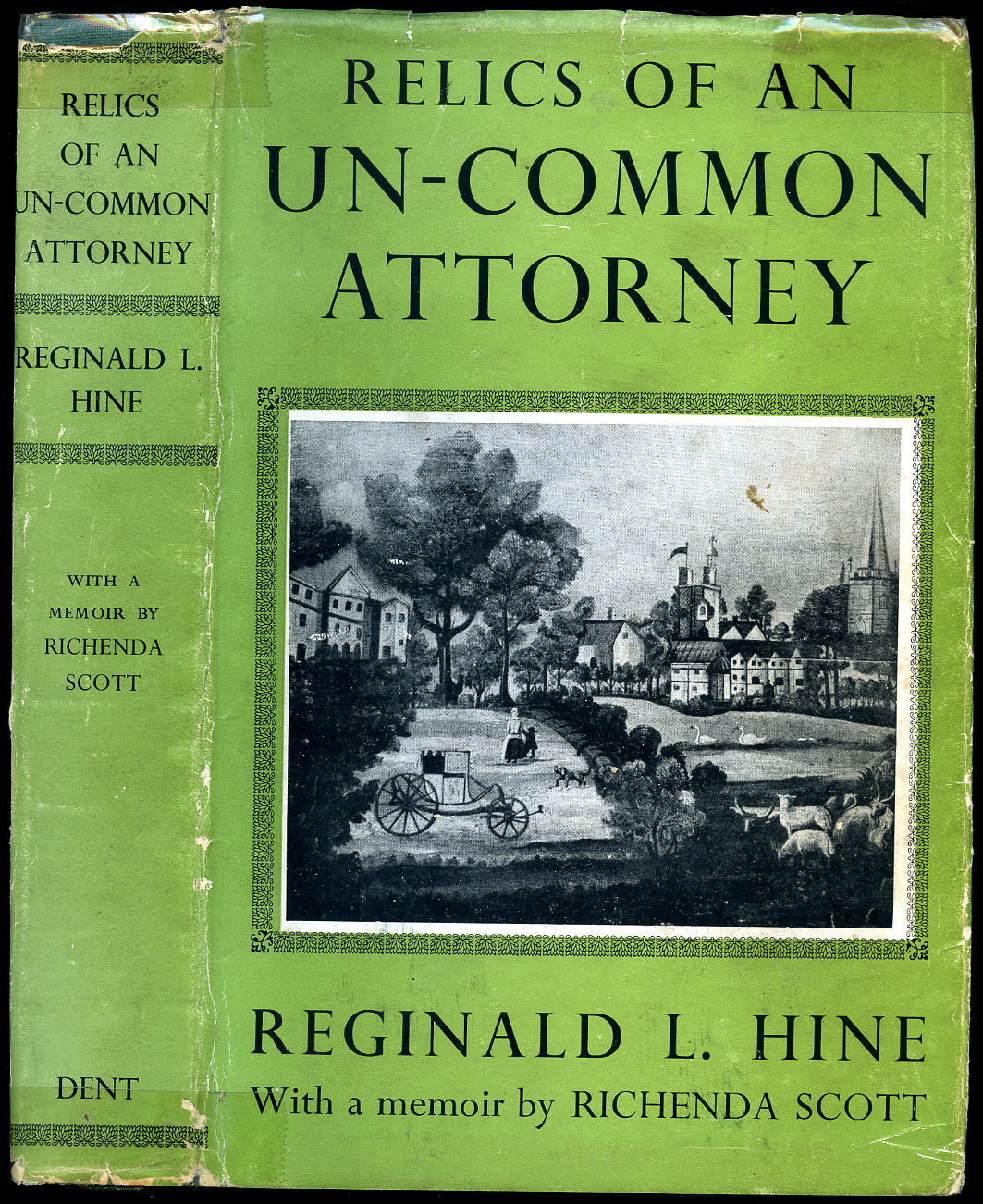
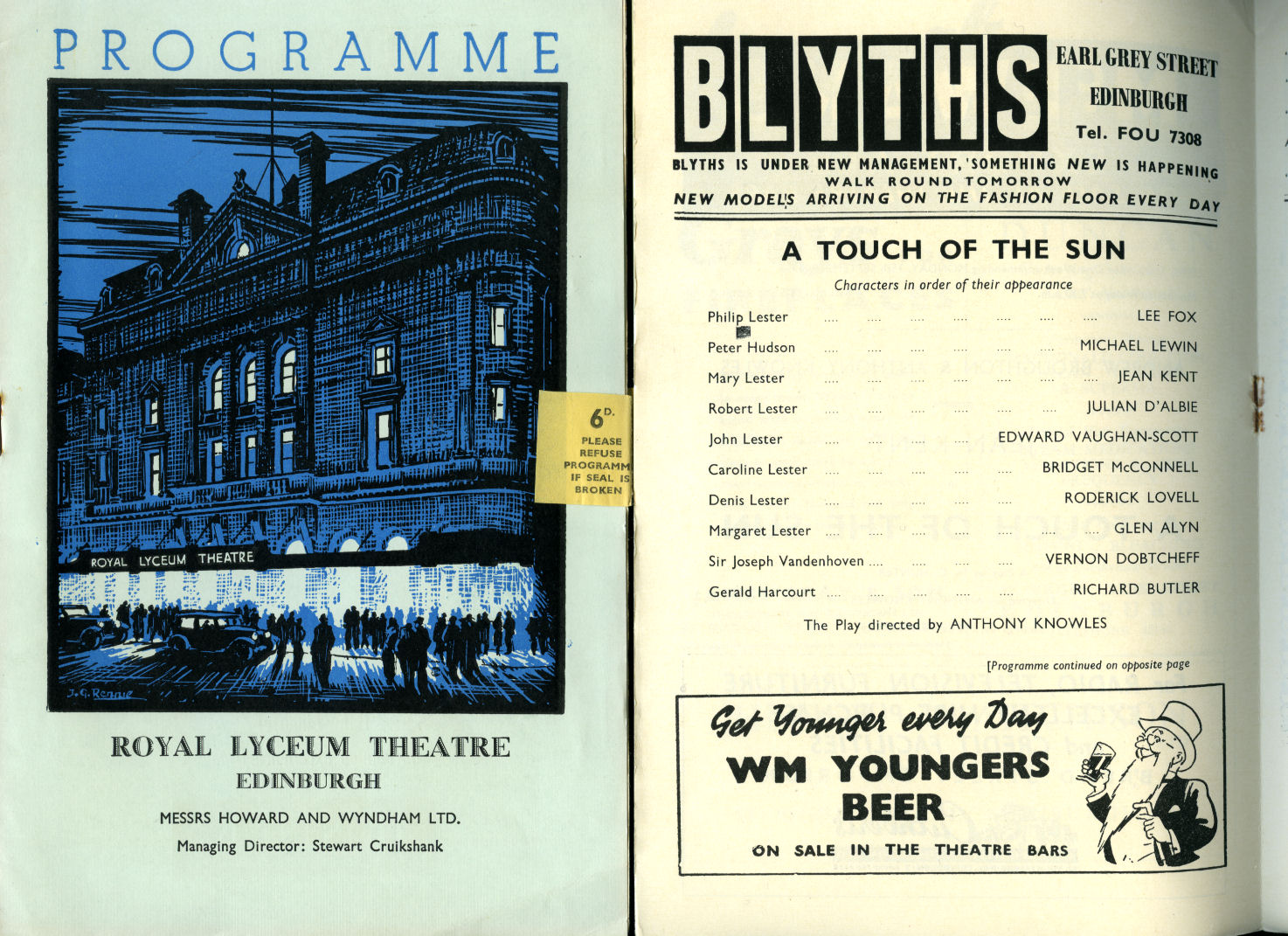
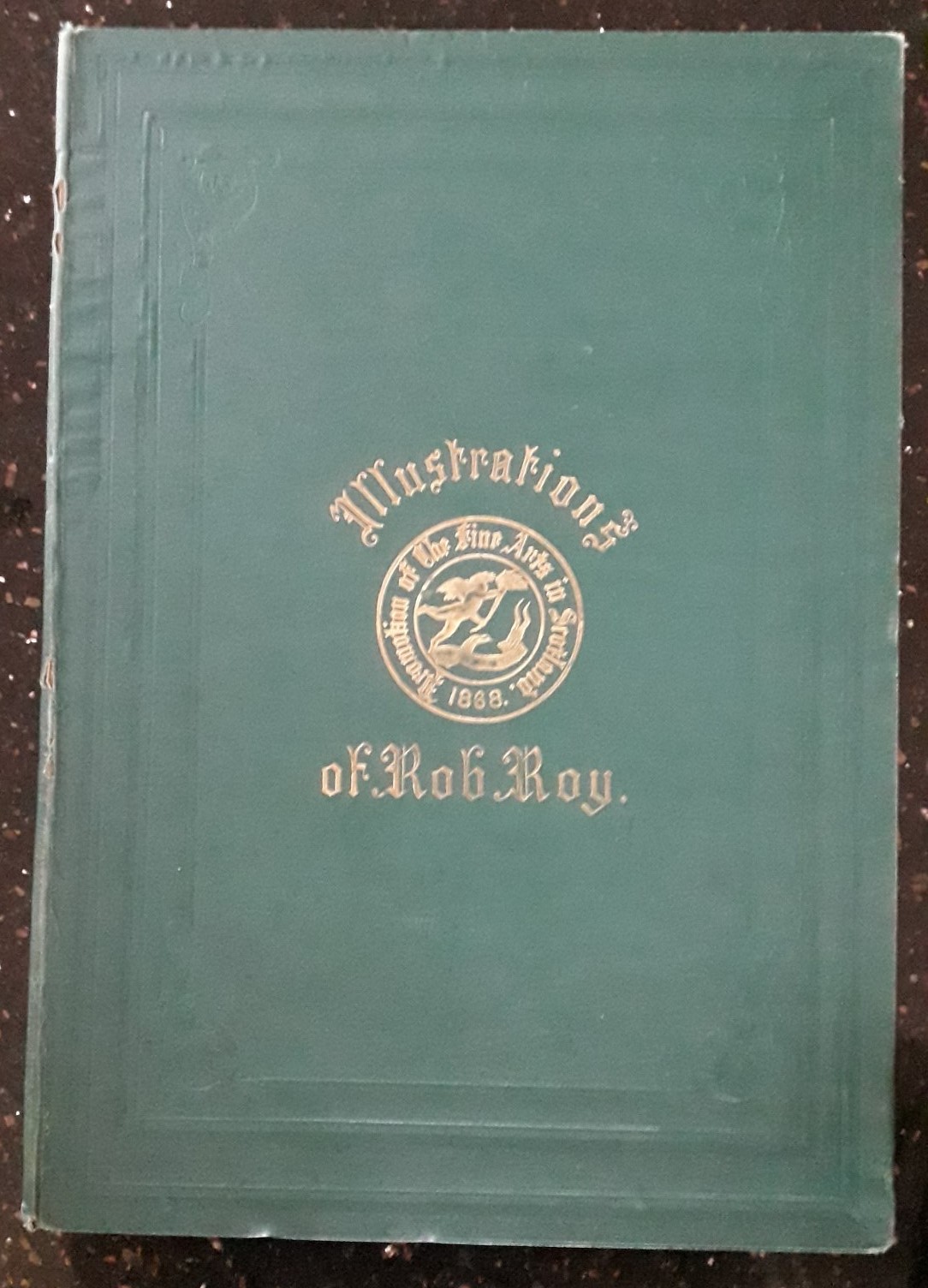
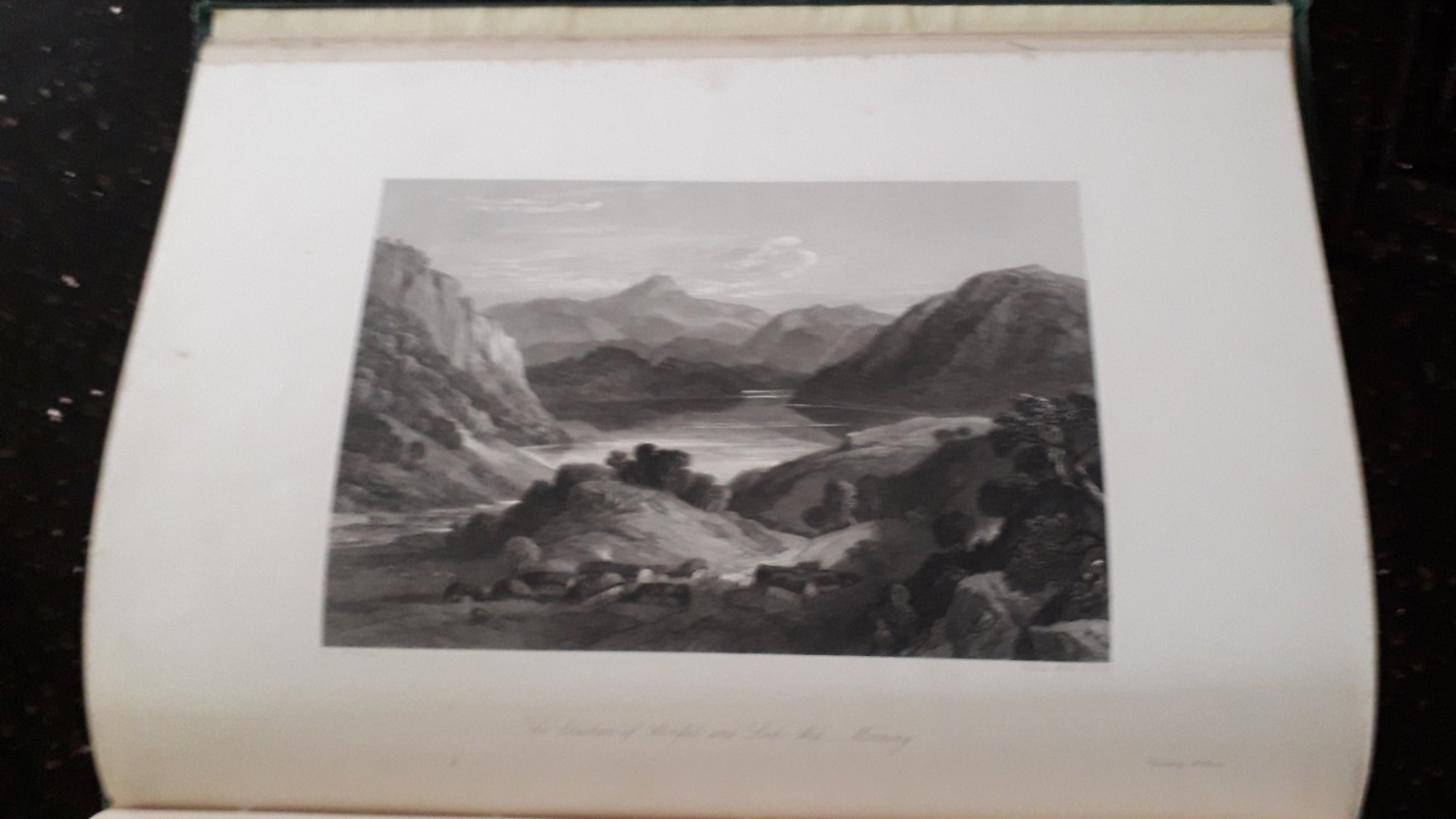
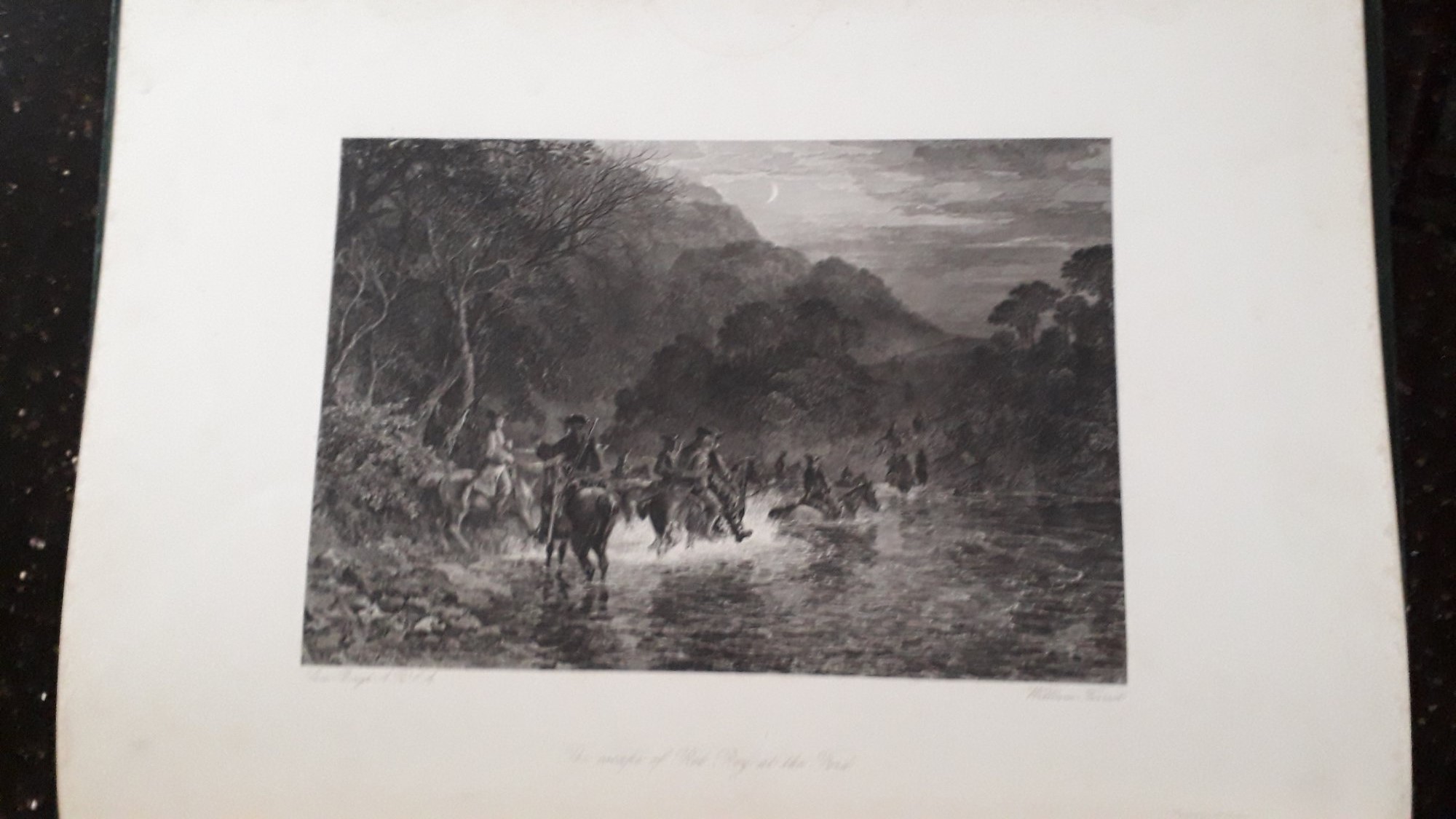



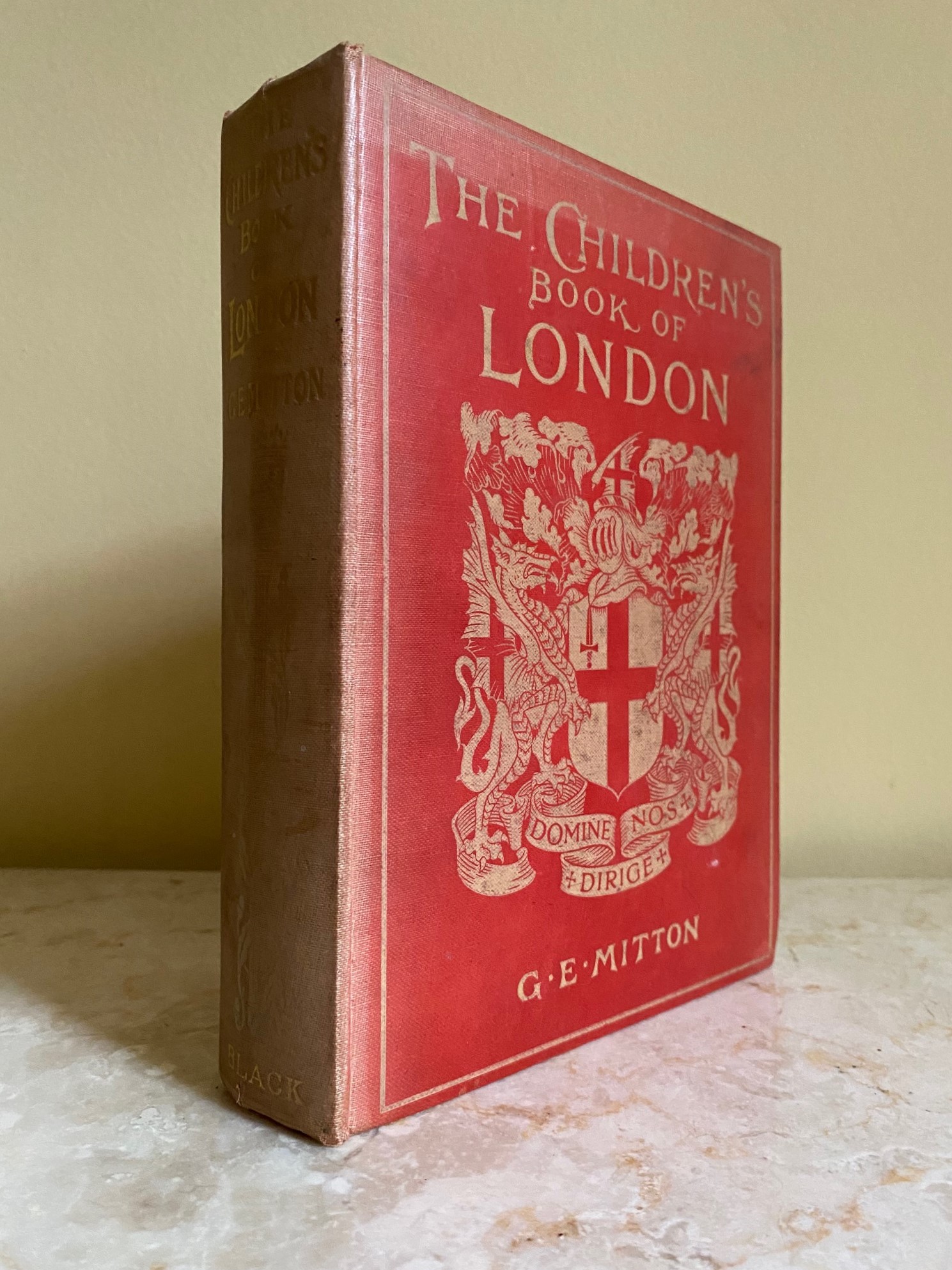
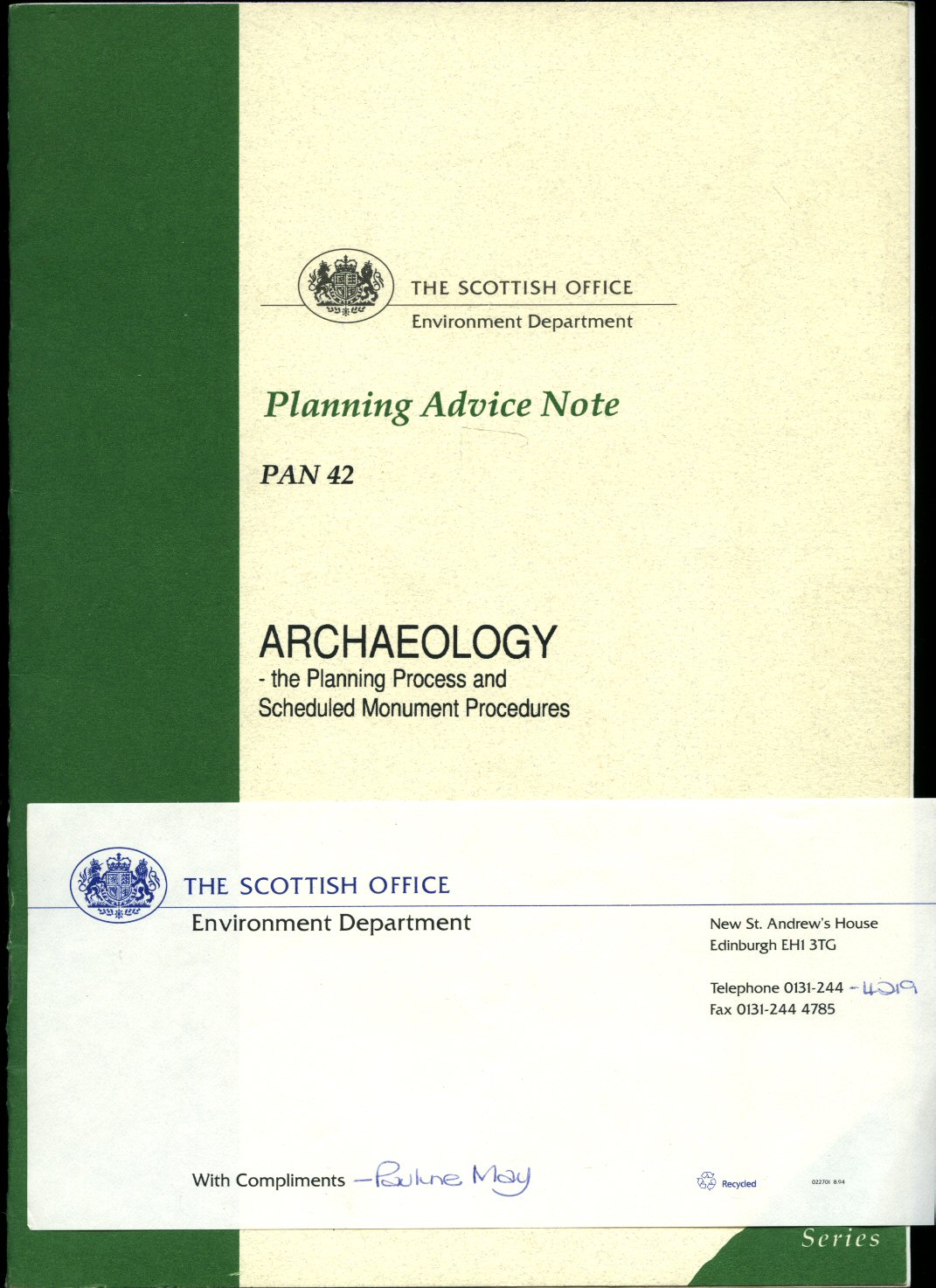
![Matt Busby | My Story as Told to David R. Jack [Signed] + Photograph](covers/93608.jpg)
![Matt Busby | My Story as Told to David R. Jack [Signed] + Photograph](covers/93608_1.jpg)
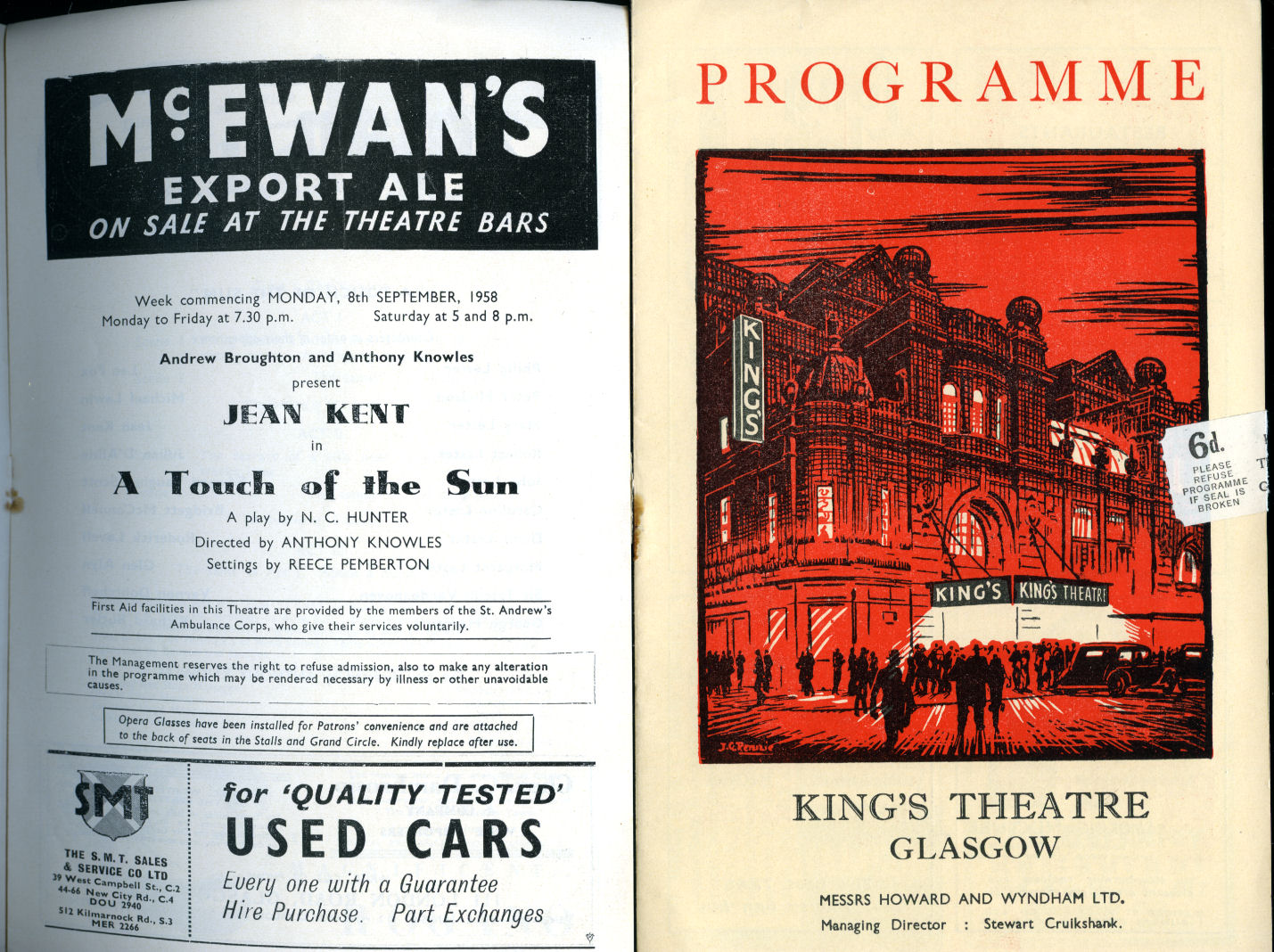
![The London Mercury | Volume (31) XXXI. No. 181 [November 1934]](covers/100859.jpg)
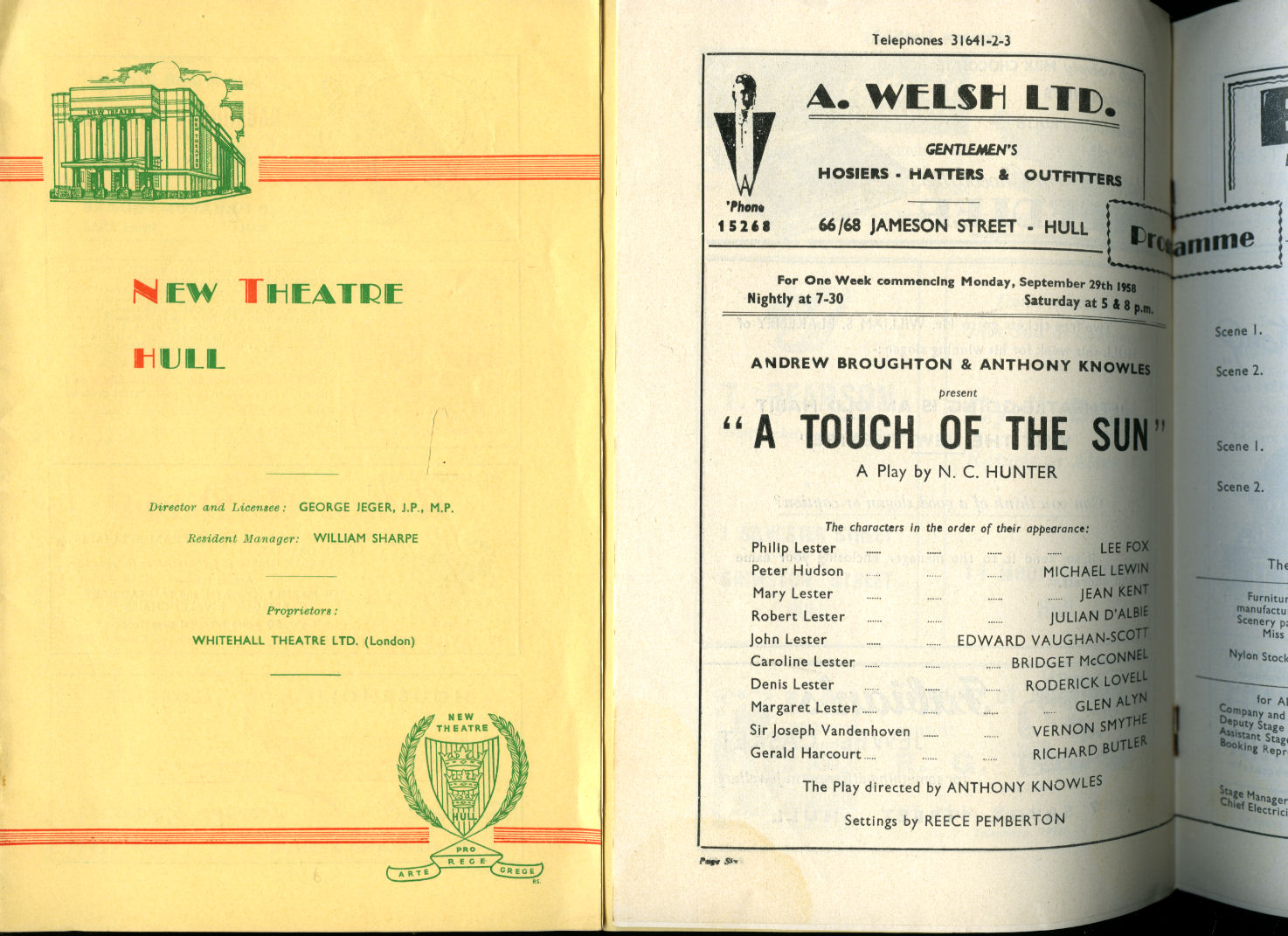
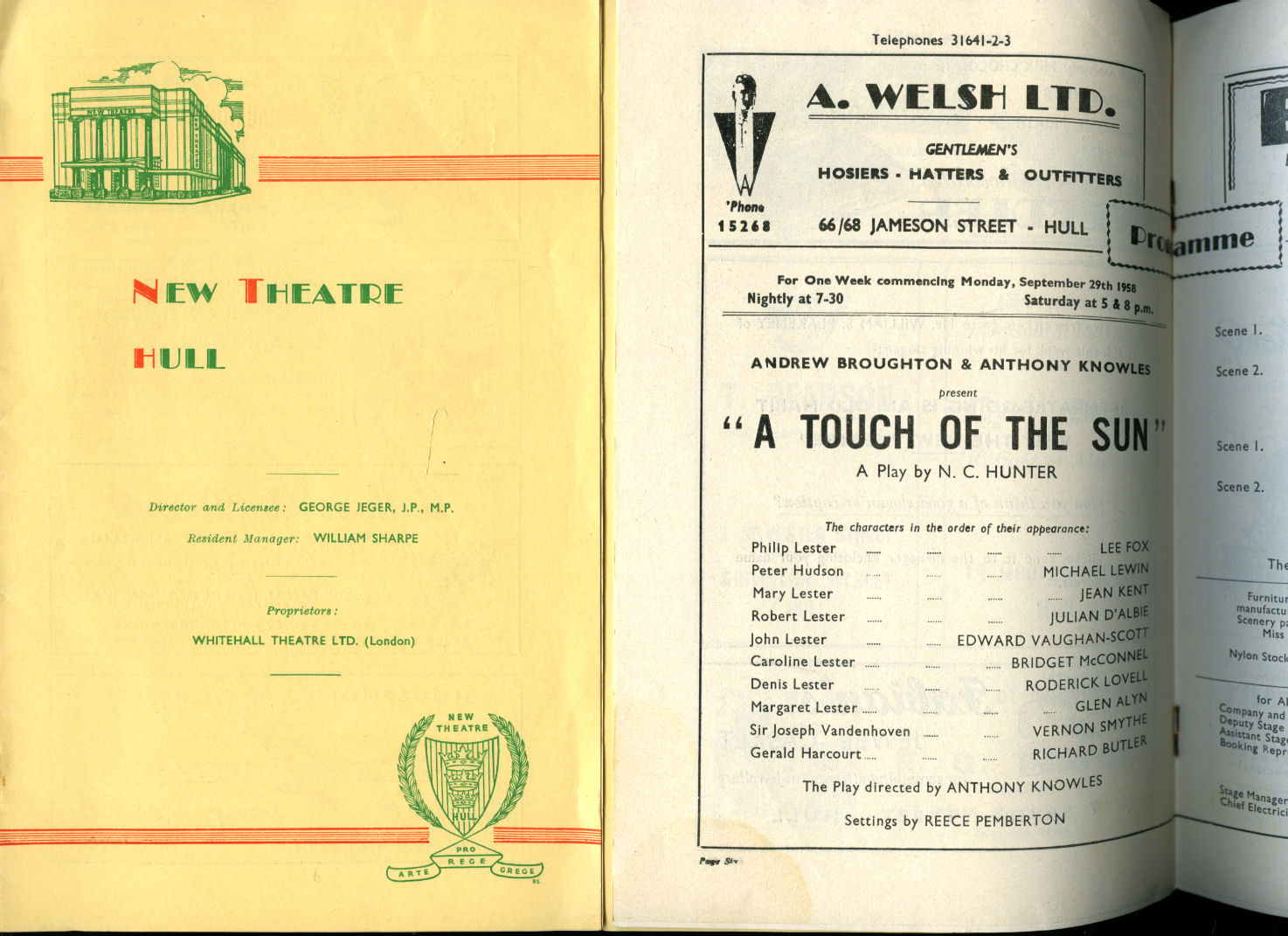
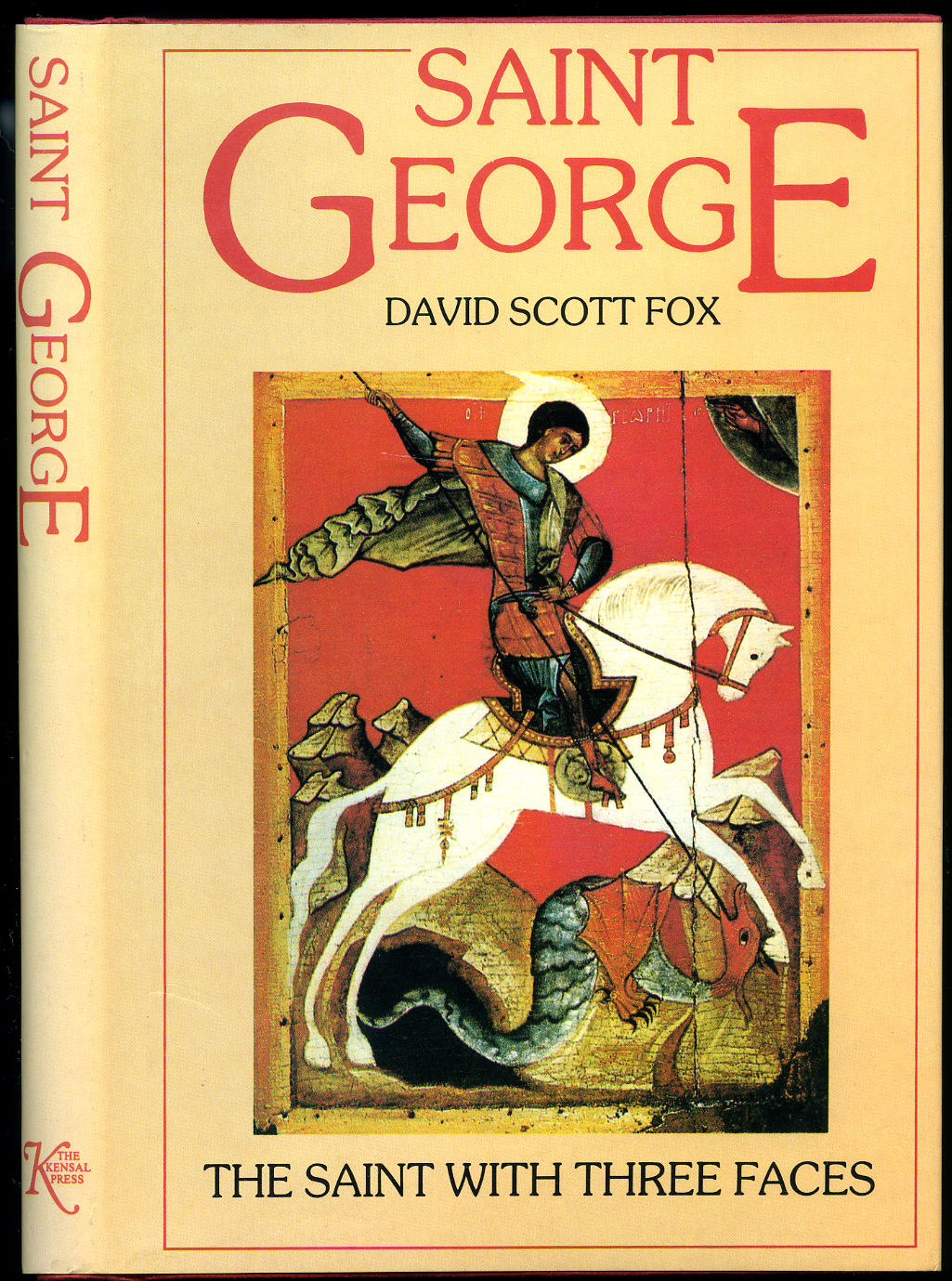
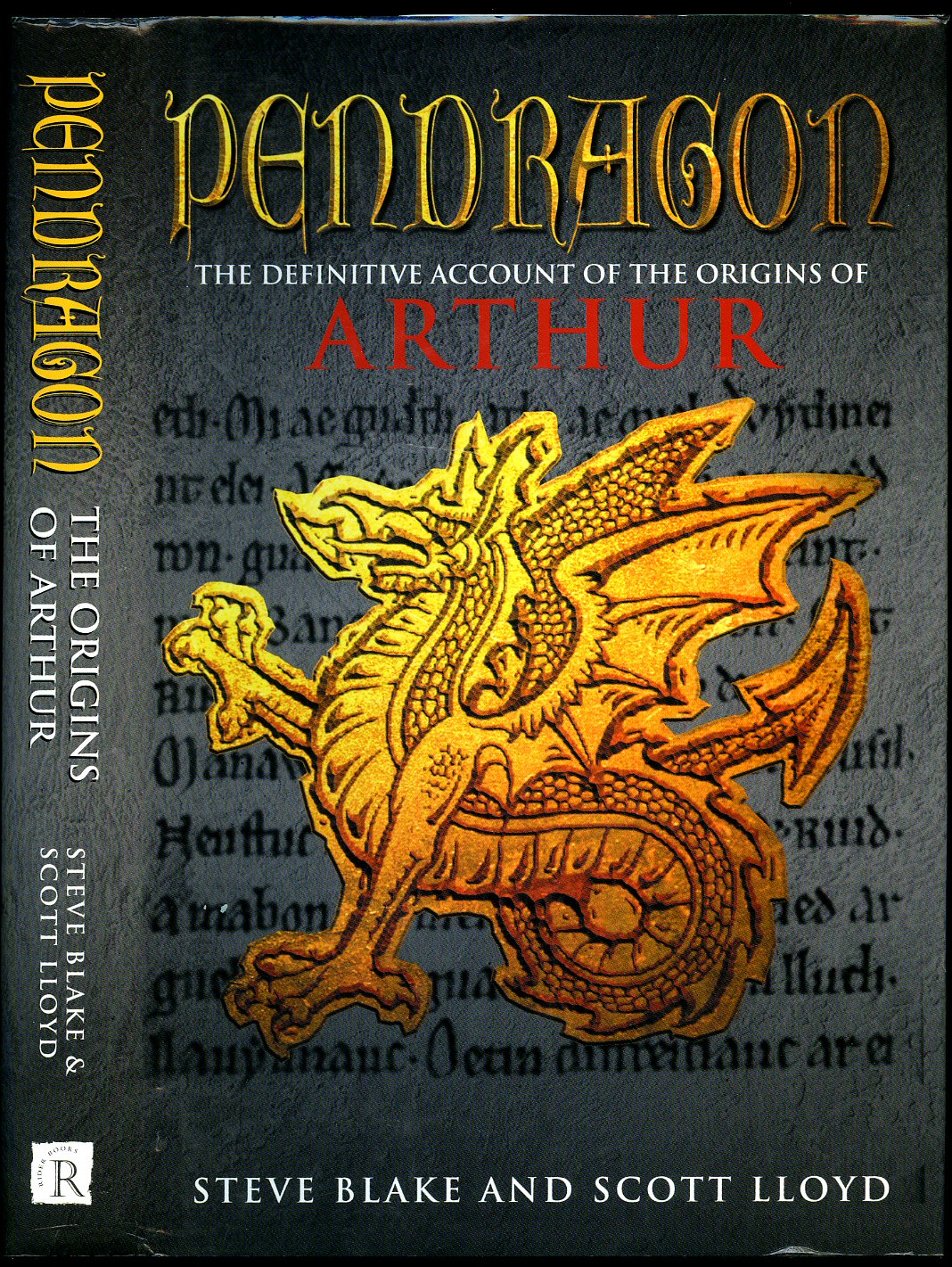

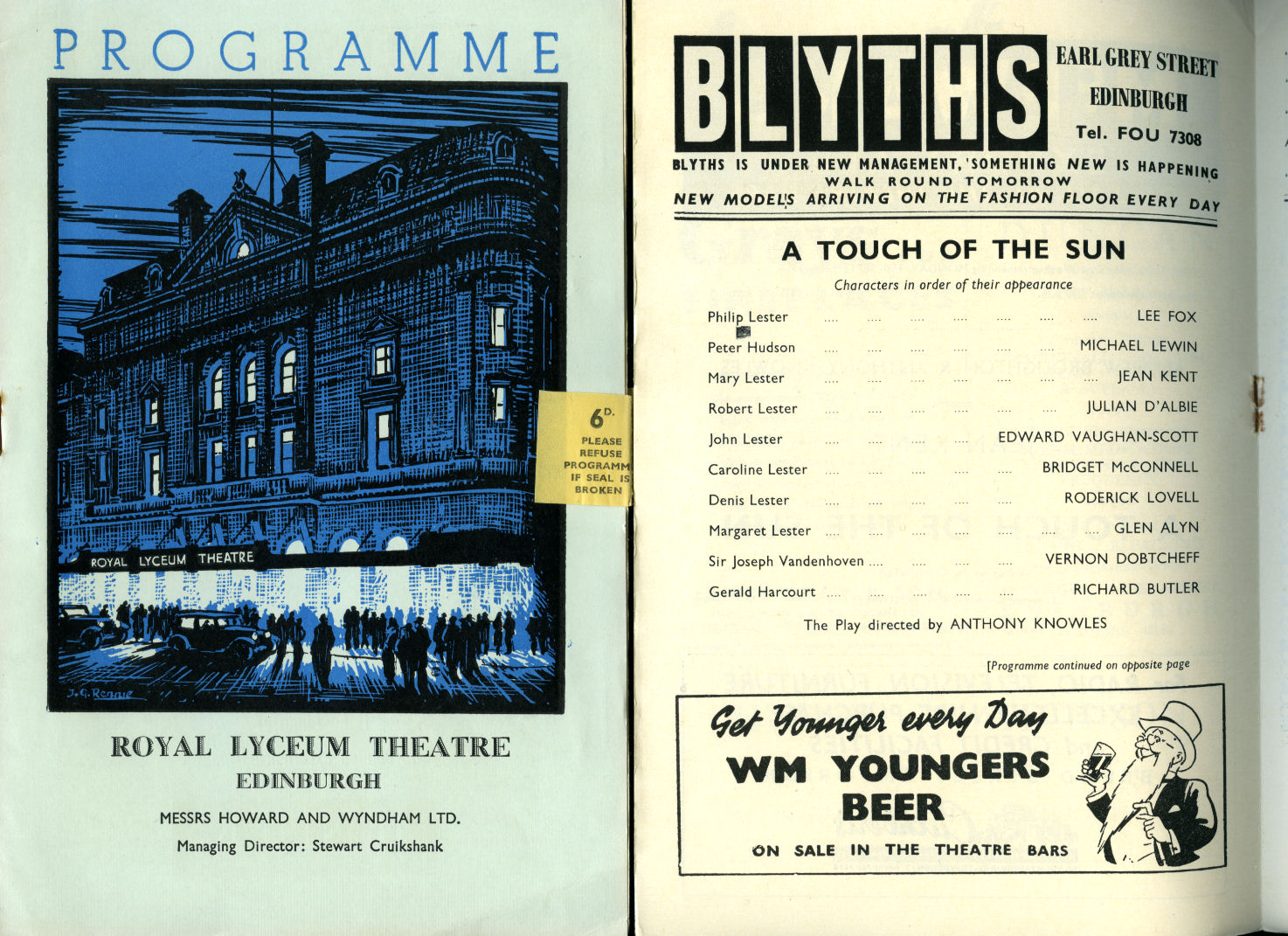

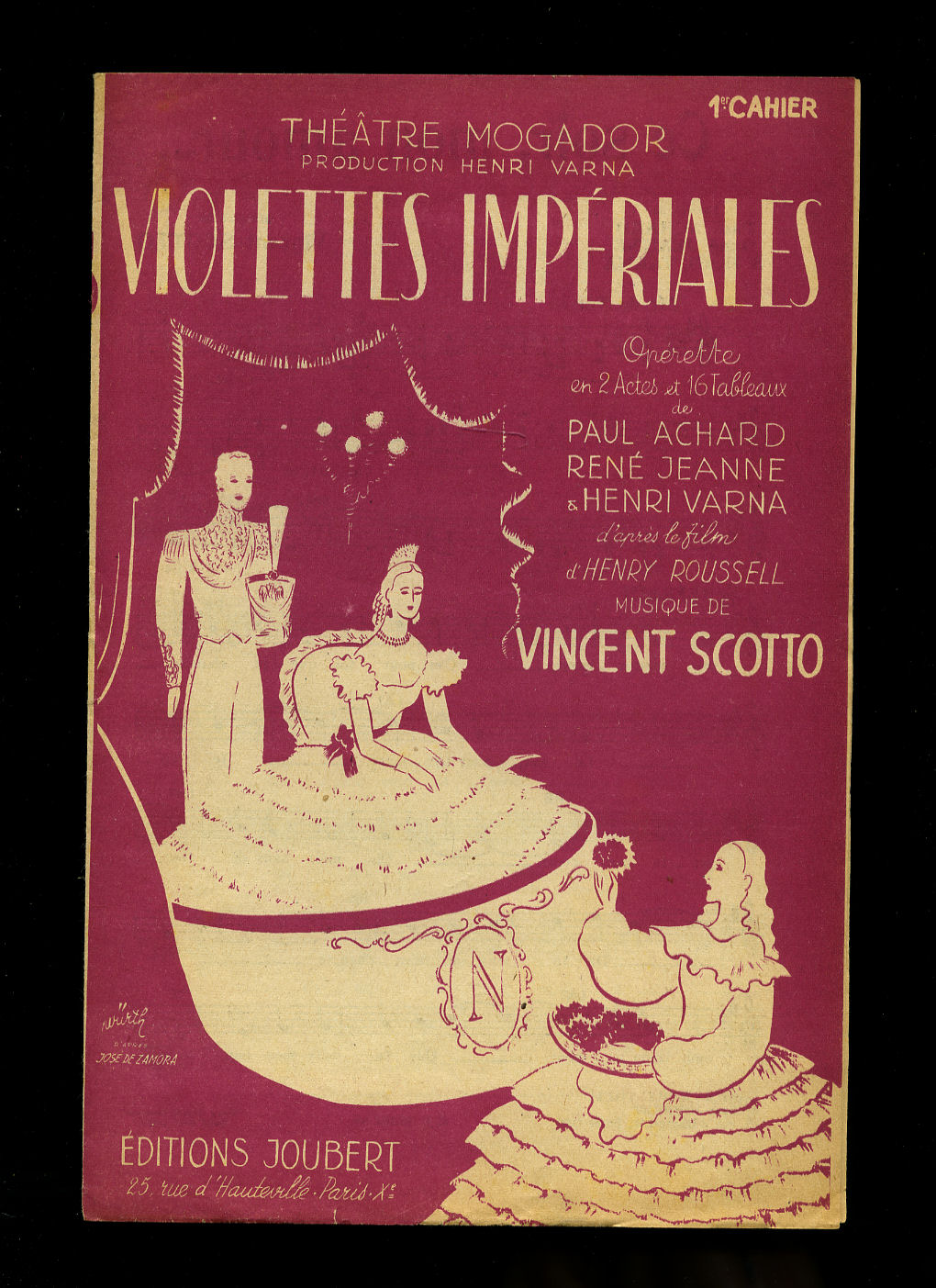
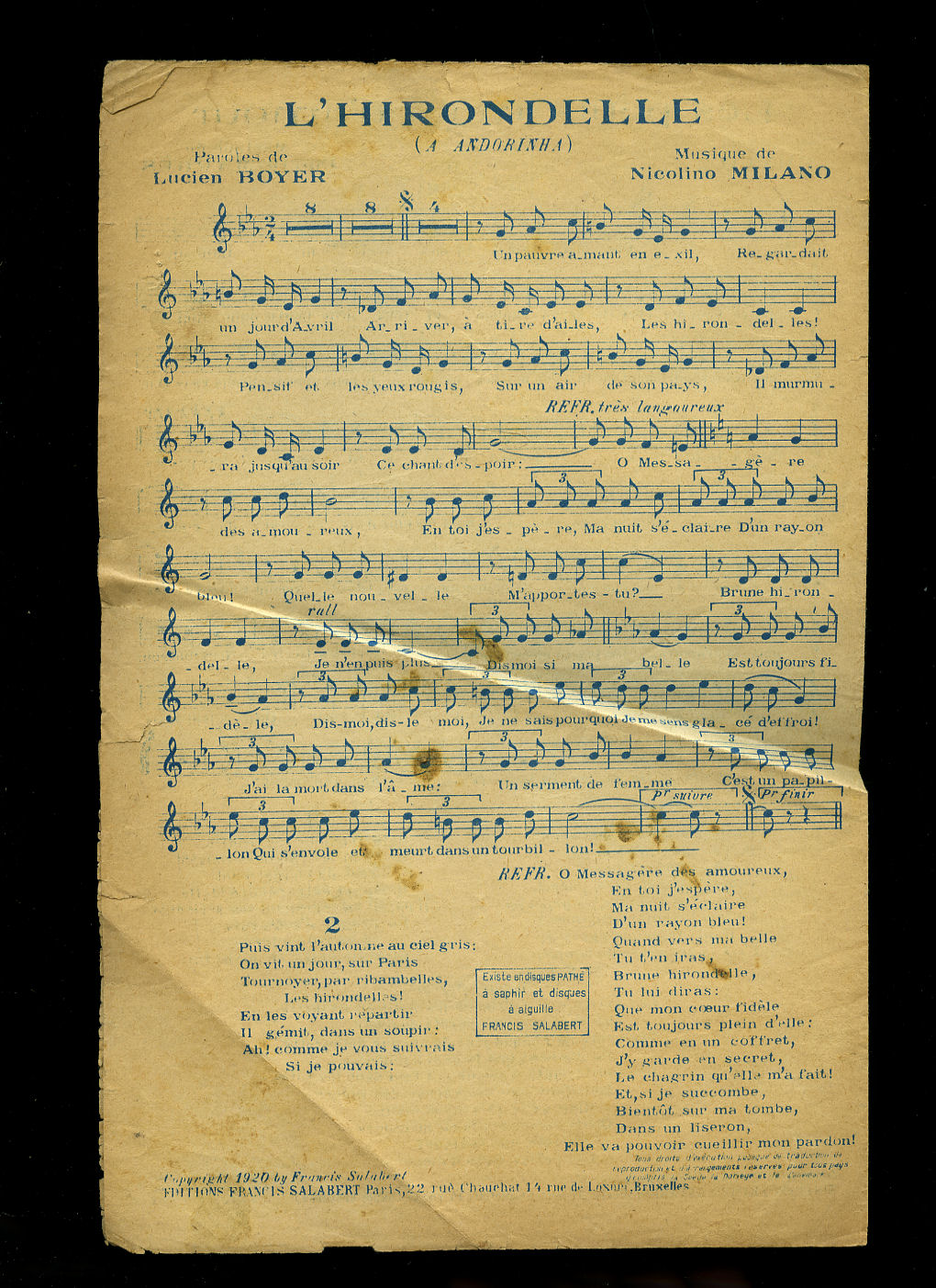
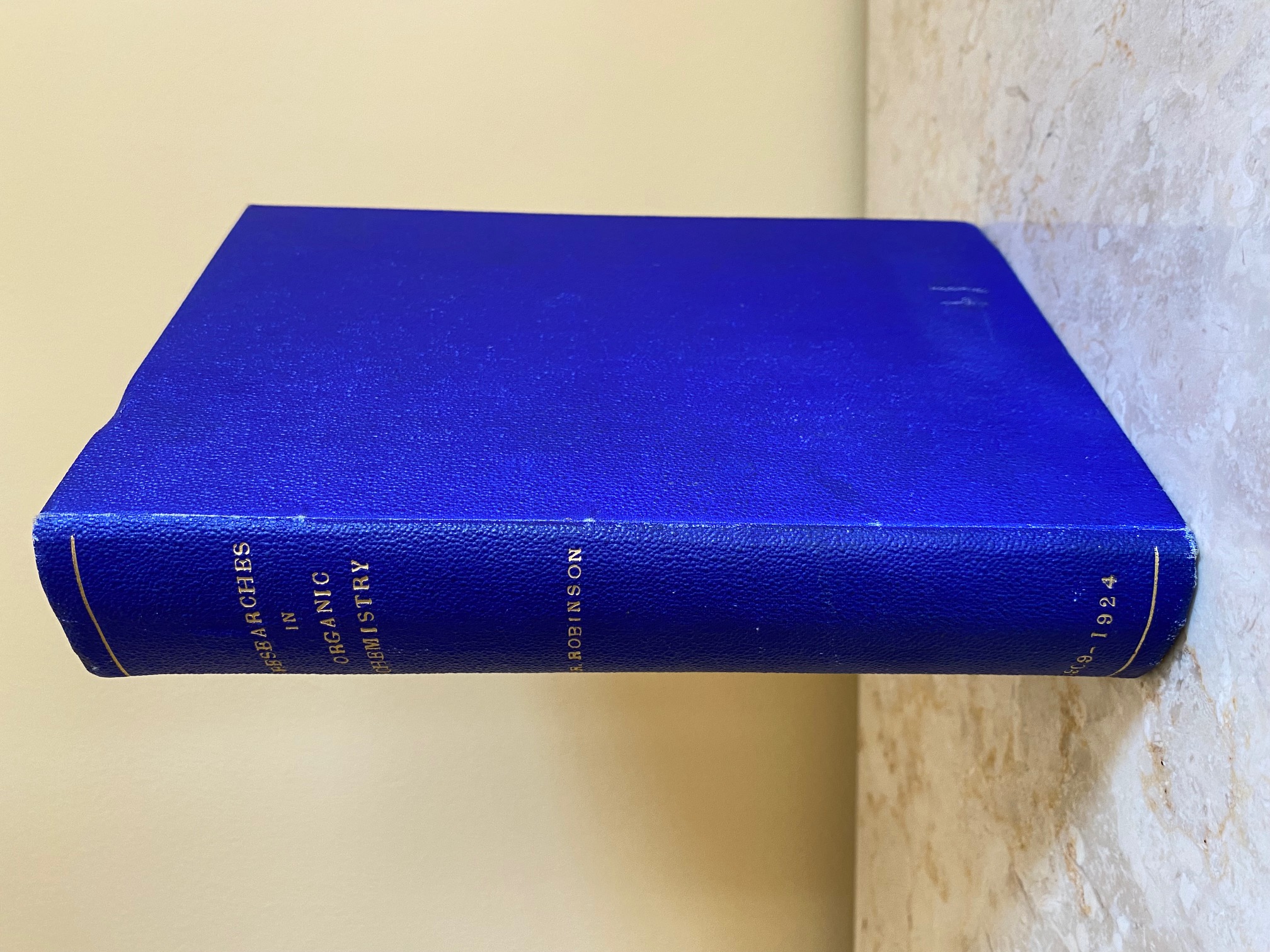
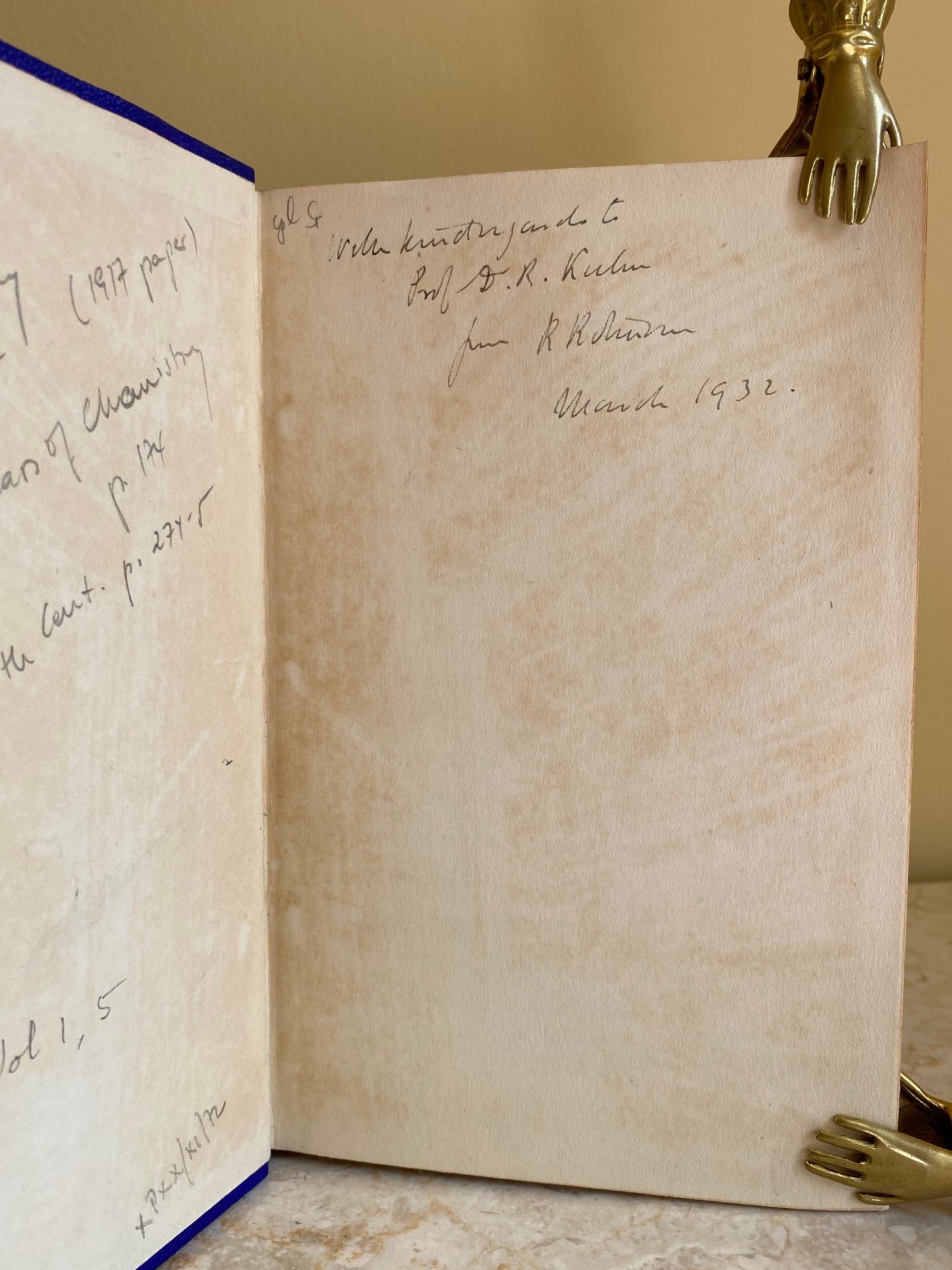
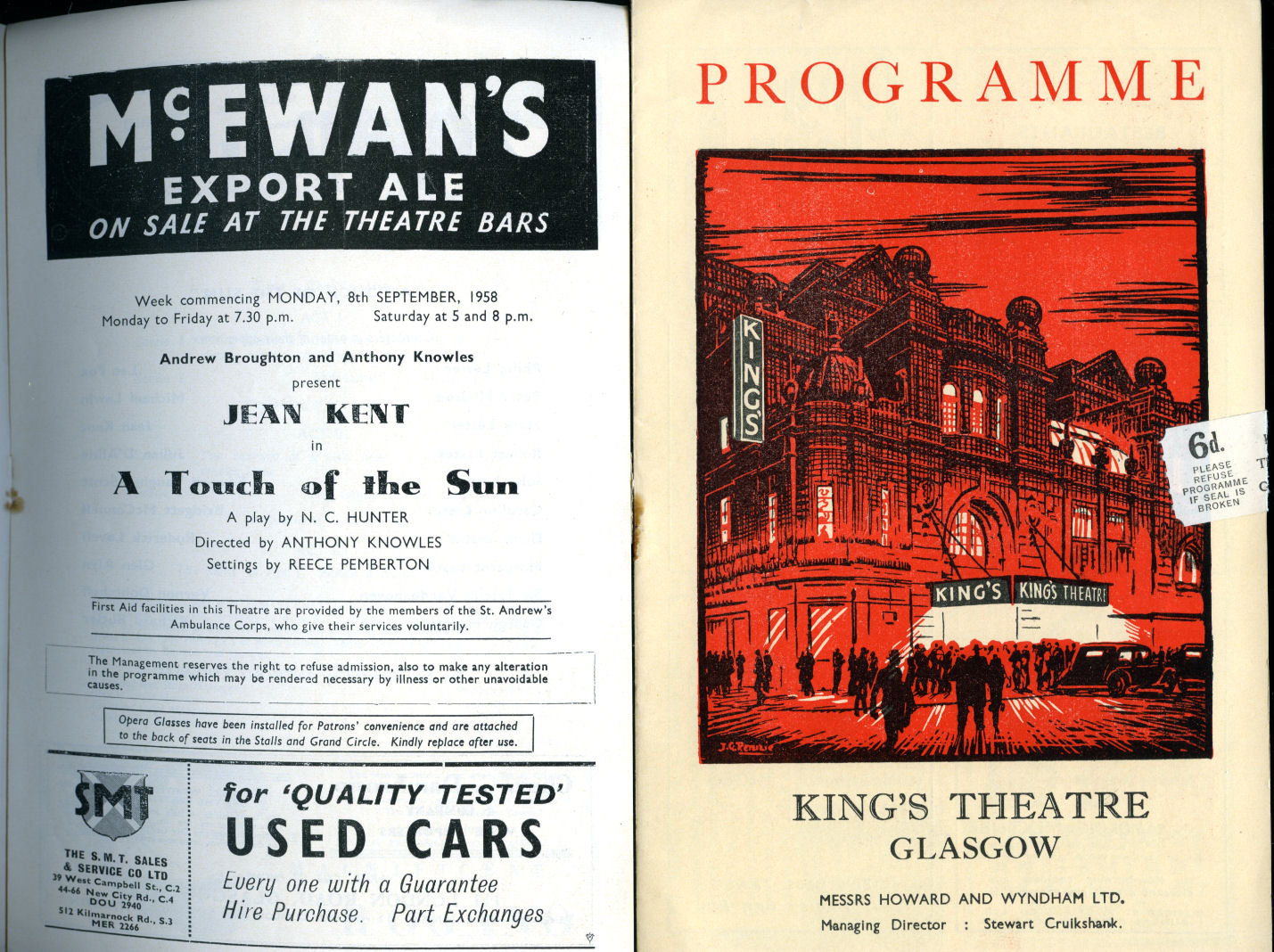

![Silver Island [Nelson Peerless Series]](covers/113376.jpg)
![Shankly [Signed]](covers/98404.jpg)
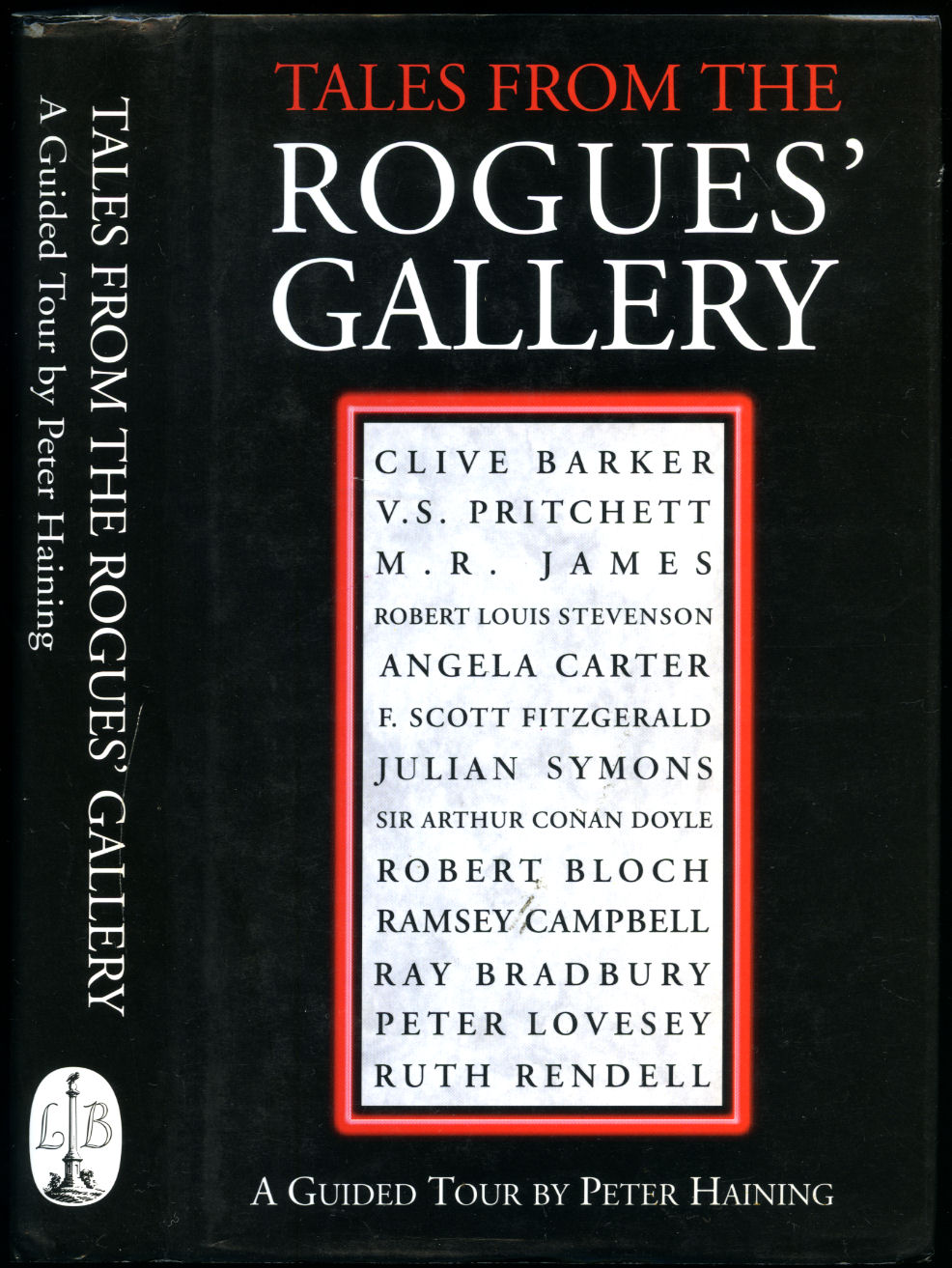
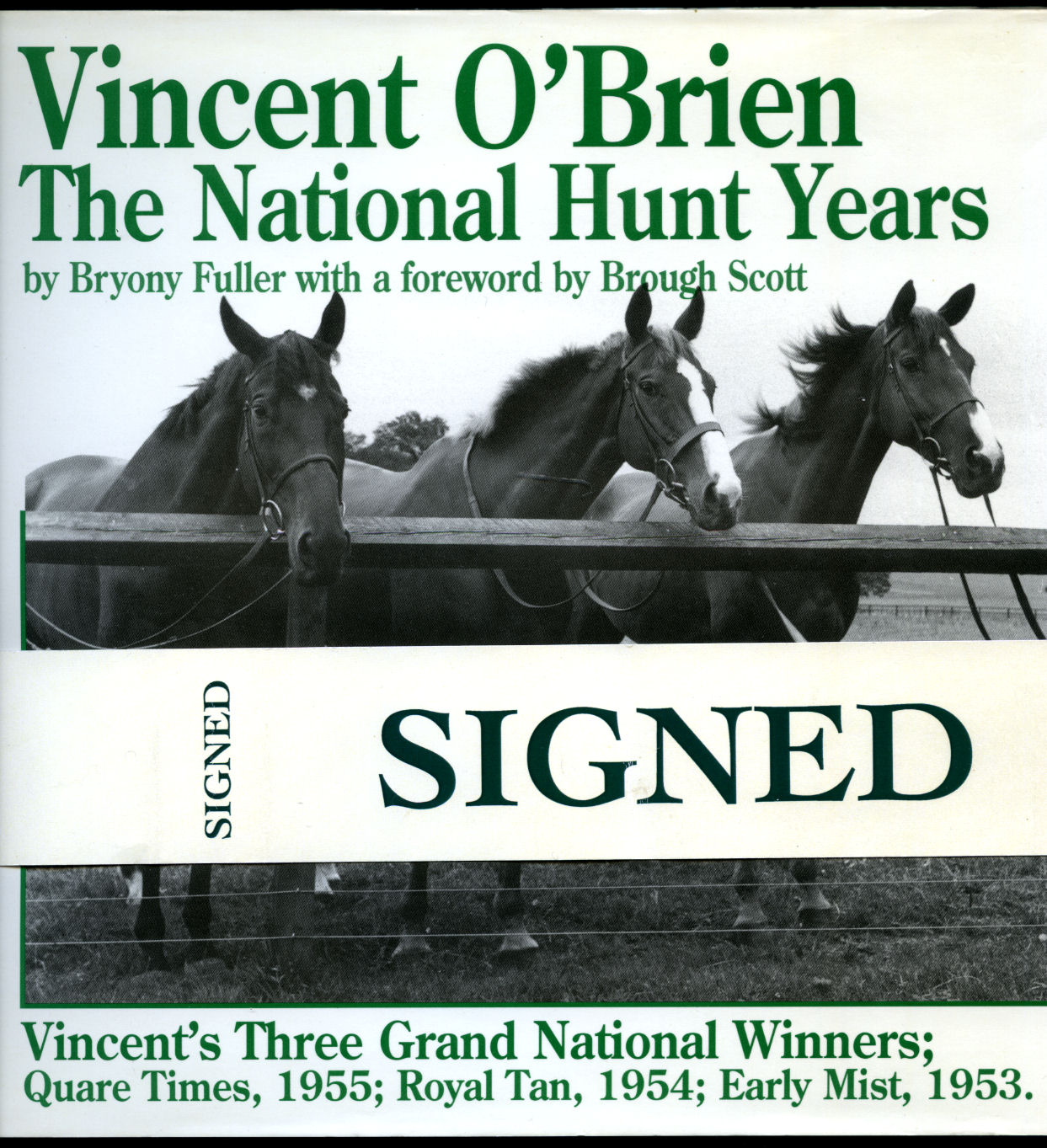
![Drawing Instruments 1850-1950 [Shire Album Series No. 180]](covers/98875.jpg)
